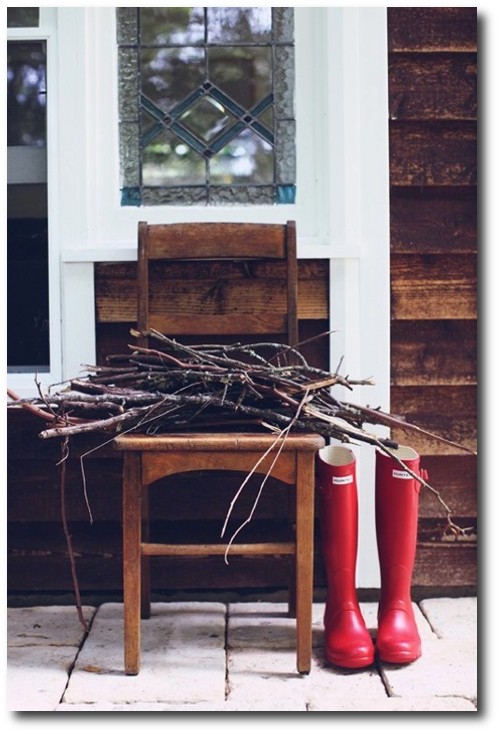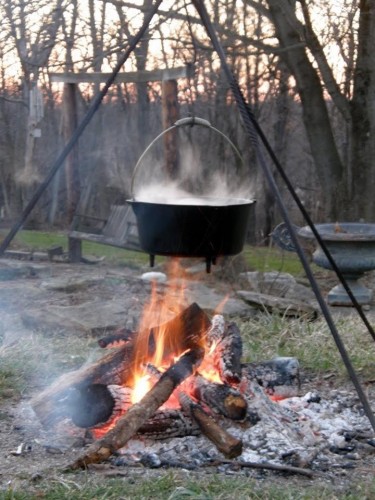 Unfortunately we can’t always protect our kids by watching their every step every minute of every day. But there are things we can do to teach our children how to protect themselves when we cannot. Online safety is just as important as real life safety. There are just as many of predators lurking online as on the streets. Here are several ways to keep your kids safe online:
Unfortunately we can’t always protect our kids by watching their every step every minute of every day. But there are things we can do to teach our children how to protect themselves when we cannot. Online safety is just as important as real life safety. There are just as many of predators lurking online as on the streets. Here are several ways to keep your kids safe online:
Monitor- Always monitor your child’s computer usage to prevent anything bad from happening. This can be done several ways:
· Place their computer in the same room that you will be in. This will help prevent them from wanting to go to sites are not appropriate. You can also keep an actual eye on what they may be doing and conversations they might have.
· Check their history on a weekly if not daily basis. Be sure to visit unfamiliar sites that they may have visited.
· Computer monitoring software programs are great for keeping tabs on your child’s every move but will cost you.
Educate- It is important that your children know how and why they should be safe online. There are predators out there that target children and know how to talk to them into dangerous things. Here are some rules you should go over with your child:
· Never give out online passwords.
· Never give out full names or phone numbers.
· Never send without parent’s approval.
· Never accept photos from a stranger.
· Never give out your home address or school name.
· Never meet anyone online in real life and always tell an adult if you feel uncomfortable with something that has happened online.
Social Media-Social media sites such as Twitter and Facebook have set an age limit on who can use their sites. No one under the age of 13 can create an account and use it. It is suggested to follow the rules that these sites have put in place to keep your child safe.
Parental blocks-Depending on what programs and computer you have, you can set up controls by visiting the start menu and choosing how long your child can be on the web as well as different site content to block.
The keyword to keeping your kid safe online is ‘monitor’. Always monitor your child’s usage even your older teens. Teens at the ages of 16 and 17 are still very impressionable and susceptible to online dangers. Teach your kids the rules and keep an eye out on them. Use the controls and programs that are offered to assist you.
Author Bio:
Jack Meyer is a regular contributor for http://www.nannybackgroundcheck.com/. As a detective he wants to spread the knowledge of terrible things that can happen when people don’t fully verify the credentials of a caregiver or any employee. He also writes for various law enforcement blogs and sites
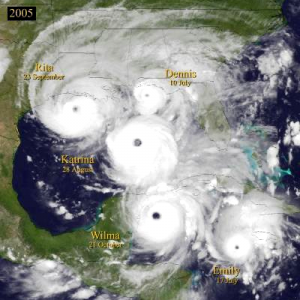 Disaster preparedness is something that all families should talk about regularly. Whether the threat is fire, flood, invasion by an enemy force or any other kind of disaster, being prepared can save the lives of your family members. It also helps to reduce fear and panic when something does happen, enabling your family to respond with intelligence and efficiency.
Disaster preparedness is something that all families should talk about regularly. Whether the threat is fire, flood, invasion by an enemy force or any other kind of disaster, being prepared can save the lives of your family members. It also helps to reduce fear and panic when something does happen, enabling your family to respond with intelligence and efficiency.
Preparing Your Children
Disasters can be particularly traumatic for children, many of whom are already beginning to feel that much of the world is outside of their control. When disaster strikes, and it becomes clear that parents cannot always prevent things like fires, floods and earthquakes from affecting the family, they can become especially vulnerable.
That is why it’s particularly important to talk with your children about the possibility of a disaster. Explain to them that a disaster may cause damage or even hurt people. Talk to them about what might happen during an emergency, such as phone and electrical service being shut off. Also, make certain they are aware that emergency personnel are working to help them at all times during a disaster. Help them to understand that firefighters, paramedics and police are all sources of assistance.
On a practical level, your children should be able to call 911 to report an emergency. Depending on their age, it might also make sense to teach them how to shut off the utilities. Children should also have ready access to contact information for an out of area relative who has agreed to be your family’s emergency contact. In fact, every member of the family should have an emergency contact information card on them at all times.
Each family member should have a go bag packed with items they will need should they be evacuated. While adults may stick with necessities, it makes sense to tuck a small doll or other toy into your child’s bag to make certain they have a comforting item available during a disaster.
Keep the Whole Family in Good Physical Condition
It’s almost impossible to predict all of the factors with which your family must contend in the aftermath of a disaster. You may face several days of hiking through difficult terrain or be forced to wade through flood stage waters. Disaster preparedness means getting fit. Take your family on regular hiking expeditions and encourage them to participate in sports and other physical endeavors. Try weight training and sign up for some 5k races. Rejecting a couch potato lifestyle just might prepare your family with the endurance they need to survive in the wake of a disaster.
Being fit also includes following a healthy diet. Keep waistlines trim and hearts in good condition by making sure that the whole family gets plenty of fresh fruits and vegetables. Make lean protein a part of each meal and teach family members the importance of the various nutrients their bodies require. Also, everyone should keep up with routine doctor visits, ensuring that all required shots and immunizations are up to date. Visiting the doctor regularly can prevent illnesses that could adversely affect your health for many years.
Know How to Shelter-in-Place
In some disaster circumstances, you may be required to shelter-in-place. This means that you have to survive wherever you may be when disaster strikes. Usually, this situation arises when authorities inform you that you must stay indoors until you are advised otherwise. General guidelines for sheltering-in-place include closing and locking exterior doors and all windows, choosing a room for shelter that has few or no windows and bringing a working radio into the room. It may be advisable to use plastic sheeting and duct tape to cover vents and windows.
You should have a shelter-in-place plan for your home and office. It also makes sense to contact the schools your children attend to find out what their shelter-in-place plan is. Should your children be at school when a disaster happens, and you cannot get to them, it may give you peace of mind to know that a workable plan is in place at their school. Possessing this kind of information gives you some sense of power over a disaster situation and increases your chances of survival.
Author Bio
Rebecca Brown is an avid blogger for NQ Mobile on CNN Money, keeping people protected when using their mobile devices.
 People have become dependant on data. Some people can’t imagine living without it. Most consumers store photos, school reports and games on their hard drive. Businesses use data to manage their inventory, understand their audience and they keep records of business dealings. Data is a major commodity that has gone from useful to essential. While data is usually safe and secure, there are times when it can be threatened. What happens to your data when there is a natural disaster? It really depends on the disaster and the type of hardware you are using.
People have become dependant on data. Some people can’t imagine living without it. Most consumers store photos, school reports and games on their hard drive. Businesses use data to manage their inventory, understand their audience and they keep records of business dealings. Data is a major commodity that has gone from useful to essential. While data is usually safe and secure, there are times when it can be threatened. What happens to your data when there is a natural disaster? It really depends on the disaster and the type of hardware you are using.
Fire
Fire can occur almost anywhere. Most homes and buildings have something flammable, and fire can spread very quickly once it has started. While a computer or server can take a good amount of heat, fire will quickly render the hard drive or device unusable. Your computer might be nothing more than black char by the time the fire is put out.
If this is the case, then your data will be lost. While you might be able to extract some data if the fire wasn’t that bad, it is common for all the data to be destroyed. Rugged servers can often survive a moderate amount of fire without any major data loss, but these servers are only sold to industrial companies. Most home users won’t be able to afford or access one of these servers.
Water
Water is another major hazard to data. If just a tiny bit of water gets into the computer, then it could easily destroy all of the circuits by affecting the internal electricity. Most computers aren’t made to be waterproof because it would cost too much money to offer this type of protection. At the same time, there are industrial servers and computers that do have waterproof shielding.
If you run a business, then the best thing you can do is install all of your computers above the flood plain. If you are a home user, then there really isn’t anything you can do to avoid this type of data loss.
Electricity
An external electrical charge is similar to getting water inside the computer. The charge will interrupt the internal electricity, and this can severely damage any data stored on your computer. Most data centers and businesses are equipped with surge protectors and other measures to ensure that a surge doesn’t destroy the servers.
While you may not be able to afford the same protection if you are a home user, you can easily get a surge protector strip to guard your computer against a disaster like this. At the same time, this type of protection can only take so much electricity. If there is too much, then your computer may still be destroyed.
Earthquake
An earthquake can be particularly devastating to data. Computers and servers are meant to remain stationary. Even a short fall or drop can destroy the hard drive. This means that all or most of your data will be gone. The best thing you can do with a standard desktop is to install the tower on the floor so that the chances of it falling are greatly reduced. If all of the components are stored in the monitor, like with many Mac OS X computers, then place the monitor flat on the desk or floor during the earthquake to reduce the chances of it falling.
Servers are typically large and difficult to move, but an earthquake can tip them over. If you use the servers in a business setting, then it might be a good idea to get a rugged server that is capable of taking some blunt force. This means that the data should be safe if the server tips over.
Off-Site Storage
One of the best things you can do to protect your data against a natural disaster is storing it somewhere else. For example, you can store your data in a cloud server. While the data stored in your home computer might be lost, the data in the cloud server should be safe and secure. This means that you can easily download all of your files to restore your hard drive. There are many inexpensive cloud and backup services that you can find online. You will have to pay a monthly expense, but this ensures that your data is safe against a natural disaster.
Author Bio
Rosa Smith uses a virtual data center design and IaaS cloud services from ProfitBricks to help her international blog!
Our commitment to living the survivalist lifestyle includes living so far off the beaten path as to make a daily commute to work impractical to say the least. And so, in monetary terms, we have been living on just a few hundred dollars a year. Someone, not understanding the essence of survivalism, suggested recently [...]]]>
 by SurvivingSurvivalism.com
by SurvivingSurvivalism.com
Our commitment to living the survivalist lifestyle includes living so far off the beaten path as to make a daily commute to work impractical to say the least. And so, in monetary terms, we have been living on just a few hundred dollars a year. Someone, not understanding the essence of survivalism, suggested recently that we “get a job.” For their sake, as well as anyone else out there who thinks that living a survivalist life means transferring your suburban life to another location, here is my job description and “payment”:
1. Collect firewood – Much of this is done by dragging fallen and standing dead pinion, cedar and juniper trees, later to be cut into correct sizes for the wood cook stove and the wood heating stove.
That replaces our gas bill.
2. Keep the storage batteries full of water and check connections to the solar panels.
That replaces our electric bill.
3. Do the laundry by the “Armstrong” method. That is, wait until the rainwater barrels are full enough to wash and rinse the clothes by hand.
More replacement of the electric bill.
4. Tend the garden and greenhouse. This is a 9 month a year job, and includes collecting manure from the pastures, turning the soil, planting the seeds, watering, removing bugs by hand, pulling weeds, staking plants, pollinating as needed and harvesting.
This replaces our food bill.
5. Tend the animals. This includes feeding the chickens, feeding the goats, feeding the cats and dog, providing them all with water, collecting eggs, milking and butchering.
Also replaces our food bill.
6. Pumping water from the well to the storage tank – by hand.
This replaces our water bill.
7. We don't have phone service available here, so one of my tasks is to not jump when the phone doesn't ring.
This negates our phone bill.
8. Use herbal and natural remedies for staying healthy.
This replaces our medical bills.
9. Take time to enjoy the stunning scenery, the warmth of the sun, read a book, have conversations with loved ones, cook an exquisite dinner.
This replaces psychiatrist bills.
In my “spare time”, I write books, articles and podcasts, answer e-mailers' questions about living the survivalist lifestyle – and all before dark.
I may be without money, but I'm not without value. And I certainly don't need a “job”!
Dan & Sheila are the authors of Surviving Survivalism – How to Avoid Survivalism Culture Shock, and hosts of the podcast, Still Surviving with Dan & Sheila. For questions about space in their Intentional Survivalist Community or other survivalist issues, they can be reached at [email protected].
 Most people at one time or another in their lives deal with fatigue. These common cases where the cause is probably related to things like overwork, stress, inactivity, lack of sleep, or bad nutrition are easily overcome with home remedies. These remedies generally amount to a number of lifestyle changes. Here are five changes that can be made to get over fatigue.
Most people at one time or another in their lives deal with fatigue. These common cases where the cause is probably related to things like overwork, stress, inactivity, lack of sleep, or bad nutrition are easily overcome with home remedies. These remedies generally amount to a number of lifestyle changes. Here are five changes that can be made to get over fatigue.
Get More Exercise
It may be one of the things you feel least like doing when you are tired, but one of the best ways to fight fatigue is to exercise more. Exercise has been proven to increase energy. Moderate amounts of daily physical activity can also improve mood and help relieve stress, which is a pretty common cause of fatigue.
If you exercise regularly and increase the amount of energy you have, the time you spend in bed will likely be more productive. You will feel more tired when it’s time to go to bed and may even fall asleep faster and enjoy a deeper sleep without constantly waking up. You will wake more rested.
Change in Diet and Eating Habits
A diet that consists of protein and complex carbohydrates like pasta, rice, beans, and whole grains combined with fruits and vegetables is balanced. Fruits and vegetables alone may fill you up and have fewer calories, but the energy they provide is short-lived. Any diet that is high in sugar content may give little bursts of energy but these will be followed by sudden drops in energy.
The Omega-3 oils found in fish can also help you stay alert. Either add a lot of fish to your diet or take a fish oil supplement daily.
Spreading small meals of whole grains and complex carbohydrates throughout the day may help as well. These foods take longer to digest and can help to steady blood sugar levels.
Get More Sleep
Not getting enough sleep is probably one of the biggest causes of being fatigued during the day. Seven to eight hours of sleep is what is needed to feel better when you wake and stay alert throughout the day. This is more easily accomplished if you go to bed early enough to get that full night’s sleep. If you occasionally don’t get enough sleep during the night, an afternoon nap can help can give you the boost of energy you need for the rest of the day.
If you have trouble getting to sleep at night, think about cutting out some of the caffeine you may consume during the day. Alcohol can also disturb your sleep.
Lose Weight
Losing any excess weight you may carry can also give you a big increase in energy. Experts in weight loss say that the best way to do this is to increase physical activity, eat well-balanced meals as described above, and cut back on the size of the portions you eat.
Drink More Water
Being dehydrated is a quick way to drain your body of energy. Studies show that the energy levels of athletes are affected by dehydration. So it is logical to assume that it can result in fatigue in anyone. You should drink at least eight 8-ounce glasses of water a day.
Author Bio
Ron Thompson writes for Del-Immune probiotic , a supplement made from the lactobacillus rhamnosus which is a natural immune system booster.
 Making certain that your home is secure is one of the most important ways that you can protect your family. Even if you feel that you live in a safe neighborhood where crime simply doesn’t happen, you should take basic precautions to make sure that feeling of security remains. Don’t wait for something bad to happen before you take a few steps to safeguard your family.
Making certain that your home is secure is one of the most important ways that you can protect your family. Even if you feel that you live in a safe neighborhood where crime simply doesn’t happen, you should take basic precautions to make sure that feeling of security remains. Don’t wait for something bad to happen before you take a few steps to safeguard your family.
Little Things Count
Many thieves gain entrance to a home through unlocked doors and windows. This applies both to the middle of the day and the night. Similarly, it’s important to not let trees and shrubberies grow unchecked in front of doors and windows. These provide screens for burglars to hide behind while they’re breaking in. Keep foliage trimmed back to make it obvious when someone’s trying to sneak in. It’s errors like these that leave your family vulnerable.
Be Aware of What’s In Your Garbage and Recycling
Thieves have no scruples about pawing through your trash and recycling. Anything in those bins might clue them in to what you have in the house or might enable them to steal your identity. Don’t put entire financial documents out at the curb. These should always be shredded and disposed of in separate receptacles. Also, be leery about putting out the box that your new flat screen television was delivered in. Putting this cardboard out at the curb for thieves to see tells them you have expensive electronics inside. Resist putting garbage and recycling at the curb on the night before pick up, as this gives thieves an opportunity to review what you’re throwing out.
The Kitchen as a Citadel
When a thief breaks into a home, the first room they head to is the master bedroom. They know that’s where they are likely to find cash, jewelry and small electronics. Other rooms they target include home offices and living rooms. The room they avoid is the kitchen. There’s little of value in there for them to steal and since most kitchens are located centrally in the house, it takes too much time for them to explore. Invest in some fake cereal boxes and soup cans to stash your valuables, then place them in the pantry to keep them safe.
Home Security System Signs
Some homeowners have taken to putting home security signs on their homes whether or not they actually have a security system. It’s actually an effective deterrent, but it’s important to place signs and window decals all around the house. Most people just put them on the front lawn and windows close to the front door. However, burglars tend to avoid the front of the house. Their entry of choice is in the rear, usually through a French or sliding glass door. Putting security signs and decals on the back of your house can be what really deters a thief from trying to get in.
Use Your Security System
If you’ve gone beyond simply placing signs and decals and actually have a security system, then make certain it’s turned on. This includes daylight hours when everyone’s away and nighttime hours when everyone is asleep. Don’t keep the alarm system off because everyone is home. Some thieves simply don’t care that people are in the house. An alarm system that is always turned off is a welcome mat to them.
Similarly, if your alarm system frequently malfunctions, summoning help or turning on alarms inadvertently, then get it fixed. Neighbors who are subjected to repeated false alarms from your security system tend to become deaf and blind in the event that there actually is an emergency. Once the system is fixed, tell your neighbors so that they’ll know your alarm signal is for real next time.
Travel Safely
When you’re out of town, don’t let newspapers and mail pile up. Have both services suspended while you’re gone or have a neighbor pick up deliveries. Don’t widely advertise your plans to be out of town in places like the salon and your kid’s soccer game. You never know who may be eavesdropping.
Author Bio
Rebecca Brown is an avid blogger for NQ Mobile on MarketWatch, keeping people protected when using their mobile devices. learn more about NQ Mobile on MarketWatch here.
]]>The Commerce Department reported on Wednesday that wholesale inventories rose 0.5 percent in August. What’s more, according to the Commerce Department sales at wholesalers rose 0.9 percent in August…the first increase since April. What this means exactly we don’t quite know. But the experts have some ideas…
Yelena Shulyatyeva, [...]]]>
 by MN Gordon, Economic Prism
by MN Gordon, Economic Prism
The Commerce Department reported on Wednesday that wholesale inventories rose 0.5 percent in August. What’s more, according to the Commerce Department sales at wholesalers rose 0.9 percent in August…the first increase since April. What this means exactly we don’t quite know. But the experts have some ideas…
Yelena Shulyatyeva, an economist at BMP Paribas in New York, says it’s a sign “companies want to stay cautious ahead of the Presidential election.” Peter Newland, of Barclays, reviewed the same report and concluded it “offered an encouraging sign that demand is beginning to rebound.”
In other words, no one really knows what these numbers mean. Yet even if they did, what good would they be?
For the life of us, we can’t comprehend what value these numbers have. What we mean is the integrity of economic data has become as questionable as the sincerity of a John Edwards paternity admission. The numbers, like words out of Edwards’ mouth, exist; but they can’t be trusted.
From our perspective, the economy and the financial system are now so distorted all reference points are gone. Things are drifting out of orbit. Economic data has become nothing more than etched lines inside a cave dwellers grotto. Here’s why…
Picking the Pockets of Dollar Savers the World Over
An industrious fellow works 200 hours a month and brings home a $5,000 monthly income. He buys a new pair of shoes. The shop owner counts this against his inventory and includes this in the following order from the wholesaler.
But then, during the same month, Federal Reserve Chairman Ben Bernanke prints up $40 billion dollars as part of his brand new QE3 program. Where does the money come from? Whence does it go?
We are told that it goes to buy mortgages. That this will lower mortgage rates and prop up the housing market. We’re also told that this will help underwater borrowers…that they’ll be bailed out and banks holding non-performing loans will be able to transfer them to the Federal Reserve’s books.
But what about the other side of the ledger? How can these bad mortgages become assets for the Fed? Quite frankly, they can’t.
The bad debts still must be written off. A default must still occur. Someone must pay for them.
But in the world of Ben Bernanke neither the lender nor the borrower must pay the bill. Rather, he takes action to conceal the mass defaults…to hide them from open market operations. To protect the banks, Bernanke’s actions inflate the currency and indirectly pick the pockets of dollar savers the world over.
Bernanke’s actions also disfigure the wholesale numbers…
Something funny from all the funny money happens to the wholesale inventories. Perhaps lower borrowing costs encourage credit based spending, which draws down wholesale inventories. To a Princeton economist it appears that the funny money has contributed to economic growth.
But it has really contributed to greater levels of debt. In effect, the economic growth has been borrowed from the future…and elementary school children are left to pick up the tab. Moreover, GDP growth becomes a proxy measurement of increases in debt.
Other consequences that aren’t so funny also result from all the funny money. Here we’ll offer one such example…
Rising Food Prices are No Laughing Matter
The vicious summer drought has brought forth rising food prices. No doubt, government mandates requiring that we put corn syrup in our gas tanks factored into the price increases. But that’s just the beginning…
When you add the Fed’s massive money printing program into the mix, there’s a potent potential for food prices to explode. Of course, we don’t know the future – this is merely conjecture. But we do know the past…
For example, we know when an infinite supply of digital monetary credits is rapidly emitted into existence an effect of rising prices occurs when measured against a more finite supply of resource production. We believe this is a major reason why the Food and Agriculture Organization’s food price index increased 140 percent over the last 10 years.
Unfortunately, this is only the beginning. When the effects of QE3 kick in and intensify the effects of supply shortage from the summer drought, food prices will explode. Drawing from the past we can tell you tomorrow’s headlines…and they are no laughing matter…
“Hungary stomachs take to the streets as global food costs jump 50 percent in less than a year.”
Newspapers in cities across the globe will report this. Remember where you read all about it first.
[MN Gordon (send him email) is the editor of the Economic Prism. Visit Economic Prism. The Economic Prism is published by Direct Expressions LLC. Subscribe Today to the Economic Prism E-Newsletter at http://www.economicprismletter.com]
]]>So you want to know how prepared you are, eh? If you are already living in your survival homestead, it's a good bet you're ready for what's coming down the pike. If you're still making preparations, maybe this will help you determine how far along you are – and where you might need to [...]]]>
 by SurvivingSurvivalism.com
by SurvivingSurvivalism.com
So you want to know how prepared you are, eh? If you are already living in your survival homestead, it's a good bet you're ready for what's coming down the pike. If you're still making preparations, maybe this will help you determine how far along you are – and where you might need to beef up.
·1. Storage Food
·A1. (-30 points) What Storage Food?
·A2. (0 points) My Neighbor has some.
·A3. (20 points) I have two cases of Dinty Moore Beef Stew & whole bunch of Raman Noodles
·A4. (100 points) I have two years of storage foods and have a garden
· 2. My Family's Attitude Toward Prepping
·A1. (-30 points) What Family?
·A2. (0 points) They already think I'm a tin foil hat wearing nut job
·A3. (20 points) I watch Preppers on TV, hoping my family notices
·A4. (100 points) We have discussed it and everyone is on the same page
· 3. I plan on Bugging out
·A1. (-30 points) When I hear gun fire in my neighborhood
·A2. (0 points) When the TV tells me to
·A3. (40 points) When they declare a Banking Holiday
·A4. (100 points) Bug out? – I'm already gone.
· 4. I was planning on getting a gun and learning how to use it
·A1. (-30 points) When I hear gun fire in my neighborhood
·A2. (-10 points) Why come I need guns?
·A3. (0 points) I already know how to use my 50 cal, my AK, my SKS, my .22 pistol, my .357 Magnum – and I can't wait to use them
·A4. (100 points) I know a gun is a tool and I know how and when to use mine for defense and hunting.
· 5. Chickens are part of my self sufficiency plans
·A1. (-30 points) The closest I get to Chickens is at KFC
·A2. (0 points) Chickens? Is that where eggs come from?
·A3. (30 points) I'm planning on getting some someday
·A4. (100 points) They roam the yard and we eat their eggs and meat
· 6. My mind set on survival is.........
·A1. (-30 points) I don't think about it much, with it being football season and all
·A2. (0 points) I'll have another beer and a bowl and hope everything will be OK
·A3. (20 points) It keeps me awake at 3am. I know I have to do something at some point
·A4. (100 points) It's what I work on a little bit everyday
· 7. My bug out bag contains
·A1. (-30 points) What bug out bag?
·A2. (0 points) Guns, a brick of C4, nunchucks, Rambo knife, condoms
·A3. (10 points) Dinty Moore Beef Stew and Fresca – but no can opener
·A4. (100 points) I'm already bugged out and don't need a bug out bag
· 8. First Aid Kits and Meds
·A1. (-30 points) What first aid kit? What meds?
·A2. (0 points) I'm sure those nice people at the FEMA camp will help me if I need it
·A3. (10 points) I've got a box of band-aids and aspirin in the upstairs bathroom
·A4. (100 points) My First Aid kit is full and I know how to use it!
· 9. Water Storage
·A1. (-30 points) What water storage?
·A2. (0 points) I have 3 cases of BPA bottled water in the basement
·A3. (20 points) I have a Lifestraw, so I'm all set!
·A4. (100 points) My survival homestead has a well/stream/river/lake etc.
· 10. Money
·A1. (-30 points) What money?
·A2. (-20 points) I have 100 oz silver and gold bars in my safe
·A3. (-10 points) I have lots of money and can buy my way out of anything
·A4. (100 points) I have already used my money to become self sufficient
· 11. Power
·A1. (-30 points) I get all the power I need from Red Bull!
·A2. (0 points) I have power as long as I pay the electric bill
·A3. (20 points) I'm going to look into that soon
·A4. (100 points) I'm already off the grid and operating on solar/wind/water power!
· 12. Shelter
·A1. (-30 points) I live in my parents' basement – it's nice there
·A2. (10 points) I have a sleeping bag somewhere
·A3. (20 points) I have an RV packed and ready to go
·A4. (100 points) I have built a house from natural resources at my survival retreat
Bonus Question:
·What am I planning to survive though?
·A1. (-30 points) Whatever happens, happens and I'll do what they tell me to.
·A2. (-20 points) Aliens are going to come from out of the sky and pick me up – I only have to survive long enough for them to find me
·A3. (50 points) Economic collapse, war, famine, radiation accidents, solar flares, pole shift and maybe Planet X
·A4. (100 points) I have decided to live a better way of life, regardless of what does or doesn't happen “out there”
Scoring:
Minus anything to 99: Go back to sleep, Dear. You're just having a bad dream.
100 to 499: You know something's up, you know you have to take some action, but you haven't done enough research to know what to do about it.
500 to 899: You're obviously on your way. Keep going.
900 to 1300: Congratulations! We'll see you on the other side!
Dan & Sheila are the authors of Surviving Survivalism – How to Avoid Survivalism Culture Shock, and hosts of the podcast, Still Surviving with Dan & Sheila. For questions about space in their Intentional Survivalist Community or other survivalist issues, they can be reached at [email protected].
]]>Authored by Dave Webb
I look at how I was educated and I have a problem. We were basically educated to be assembly line workers in a factory. Oh, we have history, English, math skills, etc.
But, the basic orientation is 9-5 education. It starts at the beginning of [...]]]>
 SINGER 160 Anniversary Limited Edition Computerized Sewing Machine- Amazon
SINGER 160 Anniversary Limited Edition Computerized Sewing Machine- Amazon
Authored by Dave Webb
I look at how I was educated and I have a problem. We were basically educated to be assembly line workers in a factory. Oh, we have history, English, math skills, etc.
But, the basic orientation is 9-5 education. It starts at the beginning of training in the schools. We all are trained to sit in chairs and listen. This prepares us for a 9-5 regiment in a factory when you grow up. Never mind that training someone to make his own way in the world might be more valuable in the long run. Like learning to run a store or a business might be better for everyone or not.
Since that day years ago when I started school, things have changed drastically. The problem is I do not feel that education has changed with it. I think we need a new approach.
I think back then the most valuable courses were shop skills. Whether it was automotive, printing, sewing, home economics, electricity, these are the things I have used the most. I want more practical teaching. What is going to get them a high paying job? What skills will they need to maintain a home. Can the children cook? How about repairing clothes. All of this is necessary in life.
I am not saying that an education in literature, English grammar, spelling, basic math skills, are not necessary. I simply think practical skills might be more worthwhile for someone starting out.
Then we come down to how the human mind actually works and how that is used in an education system to make children remember what they have learned. I have heard numbers like 80% is retained. I have heard opposite numbers on long term memory. Studies have shown low numbers of retention after testing a year later.
Most of what I know about memory comes from the Memory Institute of Illinois. My own memory has been average. So I have to work hard to learn new courses in keeping myself educated.
They have researched human memory. Their research indicates the trick is in the filing information in memory. Most human memory is images. We are basically a picture taking creature memory wise. So anything memorized must be associated with an image to be retained. None of which is utilized well by the school system.
There is a reason why the Electric Company, Sesame Street, and more recent education programs are a success. The reason is images. The more images associated with memory, the better it is retained.
The other retention is to use. The faster you put the information into practice, the longer you retain it. That is why small intensive participation classes work so much better than 40 student classes where everyone sits around and sleeps in class with their eyes open.
Other societies recognized that years ago. In the Orient, typical school sizes are limited to 10 students. To be number 10 is to be at the bottom of your class. It is a social stigma to be Number 10.
A lot of Oriental Learning is based on rote. That means they repeat the information until they remember it. Seems a little painful to me. It memorizes but gives no indication to how and why things work.
The other problem with the lower grades is I think we get what we pay for. I think sometimes the kids are in an over glorified babysitting system. It is there to keep the kids occupied while their parents work.
If the system were truly efficient, then standard challenging out would be in effect everywhere. That means you could take a test and challenge out of any course in school. You would be put where ever your level of competence places you. You would get credit for whatever courses you have been able to challenge out of. Instead we have an inefficient system that standardizes children according to age. I figure challenging out would have put me at least 3 grades higher than what I was at. When tested most of my skill levels in 9th grade were at 11th and 12th grade levels. My reading and spelling skills and vocabulary were at Freshman College level. My math and algebra skills were low. I needed special help in those areas at the time. I got it in the USAF. Not in school.
I have always had minor vertebrae problems in school. I had restless legs. It is difficult to concentrate when something in the middle of your knees is giving you torture. I had this problem in algebra. The chairs were old wood variety and gave me torture every time I used them. I had trouble concentrating under those circumstances.
Now in the military they recognized this problem. If you needed to you could simply stand and go to the side of the class. End of problem. Sleep was a problem. So standing made it easier to concentrate. That is still not done in our schools. There is too much of a hormone problem between sexes at the critical ages. It would be better to separate the sexes during the teen years for education purposes.
Not enough attention is given to grading teachers. I have known good teachers and bad teachers. One older female teacher was my claim to misfortune. She was a rote teacher. She picked on me constantly. Something about our personalities grated on both of us. But she did painfully make me learn to an excellent level despite my own lazy leanings. She drilled everything into us by rote. Repeating over and over again until we learned it all. She was not a good teacher. She was a drill instructor. I was never one to learn by rote. But she did give me skill levels I might not have otherwise learned. This was basically because we used the material right away after it was presented to us.
The reason we have the current system is money. The teachers make a lot more money in college if there is no way to challenge through the courses. Also they lecture not teach. They figure all the real teaching was done at the earlier levels which most times it is not. This is a great way to eliminate people from higher education.
I would question education. What is the real purpose behind teaching to a college level? Why not orient the teaching to what the children are going to do with their lives in accordance with what their natural ability is? For instance, the trades. A lot of people would be a lot better off if they were oriented towards what they intend to do for a living. If they choose to learn the finer arts that is perfectly all right. Making someone's preferences in literature mandatory reading isn't my idea of education.
It is a great money maker for colleges though. It produces a system based on college education as the only way to break into management of a company. Most get to a lower level of management. They are then stuck for years in that position. Finally around the age of 50 they are laid off or fired. They never are able to find a job again.
All in all, I access education by how successful a person is with or without it. Right now I feel the entire system flunks out.
I can learn more from a Professor series on CD than I can from the current system of babysitting children until they qualify for a minimum wage job somewhere. I have a terrible opinion of the way we educate children in this country. I have been in a Canadian elementary system, an English elementary system, and several systems in California and Ohio. The English elementary was the best. But that was many years ago. The individual attention given the student was very different from here.
I think we have to completely overhaul the system of education in this country. That is going to take a lot of work. For one thing the system is bogged down with older people with tenure. Once tenured they are impossible to fire! And some of them need a good kick to get them up to speed.
Some have some very strange ideas. Like no one gets good grades from these teachers. They feel only the brightest get to have good grades. They hold children to a higher standard that is unrealistic. They are incompetent teachers. They are not ignorant. Most are reasonably smart. They are horrible teachers.
Finally, we need to examine children more closely for different problems. A simple chemical imbalance can keep some children from learning. Some are pre-diabetic which can produce behavior problems. Especially if their sugars are all over the spectrum. Others should have supplements to enhance memory and intelligence. Lecithin can make a big difference in clear thinking. So can Selenium in the proper amounts prescribed by a doctor. Nothing chemical should be prescribed by a school system. That is the doctor's job and jurisdiction. Nothing in the way of vaccines should be given. That is the doctor's jurisdiction also. Some children have severe reactions to vaccines. That is why it does not belong in the school's jurisdiction. Pushing mercury compounds into children causes severe behavior problems. A lot of vaccines have additives harmful to children's health.
We need to do away with drugs that calm children down. They need special education not drugs. Ritalin was one such drug. It is also in the same class as heroin. Yet schools insisted on using it to dumb down the kids so that they behaved themselves in class. They should have been sued! Unfortunately, schools are not libel. They should be. They are responsible for our children.
I think giving parents the choice of schools is a good thing. But what do I know? I couldn't tell you from the building whether you have a good teaching system or not. Only the kids know for sure. And their opinion is somewhat suspect as they are involved in the education process as victims. I think the teaching methods need to be looked at really close. I think the teachers need to be graded as to whether or not they can teach or not. An unusually high failure rate in normal children in a class should set off an alarm. I don't see that happening in the current systems. I do see long term teachers failing because they have tenure.
I think we need to re-examine what we allow industry to demand before they consider someone for a job. I think there are very real glass ceilings based on education rather than on experience in jobs. As a result, you end up in industry with a management class based on educational skills rather than experience on the jobs involved. You have a lot of ignorant, intelligent people trying to perform management functions when they have no idea what the person is actually doing as workers. This condition results in a lot of money lost in industry.
Otherwise good workers see this and often take advantage of poor management skills in an industry. It is difficult to manage someone you have no idea what they are really doing on the job. You cannot fake it. It doesn't work.
We need a system of education that takes advantage of the natural skills most children develop at various times in their youth. Montessori has done this. They found that language skills develop at certain ages. Math Skills are easily learned at another age. It is different with each child but they tend to be in age brackets. What might take 2 years can be learned in 2-6 months if you approach the child at the right time in their development. Again challenge is the key. Challenging out of courses is strong motivation. It is necessary to catch these children at the right time. It is also necessary to take advantage of a more efficient regime. On one hand we need more individual attention to the child. On the other, we need to do away with the wasted time. Challenging out is one way to do just that.
We need to take advantage of the advances in learning technology in the last 10 to 20 years. To do this the education system in this country has to change the way we are teaching. There is more than one way to teach a child. What works for one might be wrong for another. There are survival skills necessary after they leave school. Those skills should be taught at school.
If we want a baby-sitting system, you are well served.
If we want a system that prepares our children for life, we have a lot of changes to make.
]]>1. Know Your Region
Some regions [...]]]>
 Contemplating a natural disaster may not be fun, but it can grant you tremendous peace of mind should a disaster strike. Having a plan is the best way to protect yourself and your family. Accordingly, it makes sense to plan ahead by doing a little bit of preparing for the worst.
Contemplating a natural disaster may not be fun, but it can grant you tremendous peace of mind should a disaster strike. Having a plan is the best way to protect yourself and your family. Accordingly, it makes sense to plan ahead by doing a little bit of preparing for the worst.
1. Know Your Region
Some regions of the world are susceptible to tsunamis while others are more likely to see earthquakes. Still other areas might be subject to tornadoes or hurricanes. Knowing what types of natural disasters you are likely to encounter is the first step to being prepared. Your preparations may vary slightly depending upon whether you are more vulnerable to forest fires or floods. However, the basic needs for food, clothing, shelter and medical supplies will apply regardless of the type of emergency.
2. Learn CPR and Basic First Aid
Many local organizations provide free or low cost training for CPR and first aid. You’ll learn how to clean wounds and place bandages in addition to how to provide life saving CPR. Even when no natural disaster is imminent, these skills can save a life. These classes do not require a lot of time, but the dividends they may pay in the future are immeasurable.
3. Plan for Communication
When disaster strikes, your family members may be scattered in several different places. Designate a relative who lives outside of the local area to be the contact that every family member will attempt to reach in the event of an emergency. While local telephone lines may be affected by the disaster, long distance lines may not. It may also be beneficial to use pay telephones to communicate, as these are often repaired first in the aftermath of a disaster. Cell phones can be indispensable as long as local towers have not sustained too much damage. Keep a working cell phone and a charger with you at all times.
4. Designate a Meeting Place
Choose a place that is close to home, but not inside the structure. Make certain that every family member knows the address and can find the location from any direction. Also, establish a second meeting place that is outside of your neighborhood in case it isn’t possible to enter the area. Inform caregivers and babysitters of the details of your meeting spot.
5. Be Prepared to Evacuate
Families should have a plan for evacuating their home should this ever be necessary. Establish escape routes and then practice using them. Ensure that windows are not nailed or painted shut and know how to turn off electricity, water or gas from the main switches. Homes with multiple levels should be equipped with escape ladders.
6. Have an Emergency Kit
The kit should include at least one or two gallons of water for each person per day. Non-perishable food and a mechanical can opener are essential. Keep a simple barbecue unit on hand with appropriate fuel, matches and utensils. Emergency blankets, a tent and sleeping bags can provide warmth and shelter. A first aid kit, flashlights and a battery powered radio are necessities. Sanitation and hygiene items like toothbrushes and toilet paper and important personal documents can also be included.
7. Prepare Pets
Keep vaccination records handy and be sure to pack food and blankets to protect pets. An extra supply of pet medications can be kept with your family’s prescriptions.
8. Make Your Car Disaster Ready
Having a small emergency kit in your car makes it easy to evacuate quickly. If a disaster seems likely, make sure that the gas tank is full and keep it that way. A fuel can with extra gas can prevent an emergency in the wake of disaster.
9. Be Ready at Work
Familiarize yourself with evacuation routes from your office and keep a small emergency kit there as well. Also, be aware of where to find fire extinguishers and AEDs inside the building.
10. Create Emergency Contact Cards
The cards should easily fit in pockets, wallets and purses. They should contain phone numbers to call in emergencies, the address of meeting places and other helpful information. When disaster strikes, it can be difficult to clearly recall these details.
Author Bio
Rebecca Brown is an avid blogger for NQ Mobile in the Google play store, keeping people protected when using their mobile devices.
]]>(Guest Article by Dave Webb)
The following is from an article in the Dayton Daily News in Ohio. Anyone who is not alarmed by this quote needs to be. It effects everyone. “A typical middle-income family making $40,000 to $64,000 a year could see its taxes go up by $2,000 in 2013 if lawmakers fail to [...]]]>
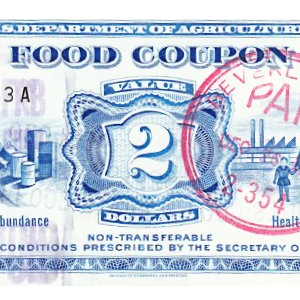
(Guest Article by Dave Webb)
The following is from an article in the Dayton Daily News in Ohio. Anyone who is not alarmed by this quote needs to be. It effects everyone. “A typical middle-income family making $40,000 to $64,000 a year could see its taxes go up by $2,000 in 2013 if lawmakers fail to renew a lengthy roster of tax cuts set to expire at the end of 2012, according to a new report Monday, Oct. 1, 2012. Taxpayers across the income spectrum would be hit with large tax hikes, the Tax Policy Center said in its study, with households in the top 1 percent income range seeing an average tax increase of more than $120,000, while a family making between $110,000 to $140,000 could see a tax hike in the $6,000 range.” Normally I would not quote anyone from the wire services. If there is ever a Pravda(Moscow newspaper) in the United States, surely this is it. This one got through the editors. I don't know why but it did. The FED is busy printing money. They do not have time to comfort us. The new idea which is very old is to make our money worthless. This encourages unions and everyone else to re-negotiate wages every year. Obviously if everything is inflating at say 10% per year(Off the wall number) then everything will go back to “normal” and everyone will go back to work. Right? I have come to a revolutionary conclusion. The government does not want us to work! Here is my logic on this statement: One of the purposes of the tax code is to discourage things.
- You are not supposed to smoke cigarettes. So we put huge taxes on a carton of cigarettes to discourage their use.
- You are not supposed to drink alcohol. So we put huge taxes on a carton of cigarettes to discourage their use.
- Telephone services. You are not encouraged to use a telephone, so we put federal taxes on its use.
- Cable. Mixed bag here. They want your intelligence put down so they actually have legislated the air waves so an antenna is less useful. But the government wants to tax it so I guess they want to discourage its use. (translated: everyone has to use cable, it is easier to control what comes over cable than the airwaves and dumb you down.)
- Buying Retail Goods locally. It is taxed at 7%. Even cat food is taxed even though it is considered food. You are not supposed to own a pet. Any apartment landlord will tell you that. He adds onto the bill for rent because animals are all like pigs and leave their debris for the landlord to clear out after the tenant leaves.
- Even water is taxed indirectly. You are charged for your sewer. You are charged for how much fresh water you use through the water companies.
- Marriage tax. If you do the right thing and marry your mistress the government thinks they need to tax you for it. If you live in sin, the taxes are a lot less. Thus the penalty for doing the right thing and getting married. Also the liability for health care is less if you are single rather than married.
- Tax people's industrial pensions through their companies. Unlike Social Security this is being done by a number of states to the tune of several thousand a year per individual.
- Inflate the economy as a tax. The Fed keeps savings interest at so low a number that no one should even think about savings accounts. By the time you save the money, it is worth half what you earned. So by all means go out there and spend every thing you earn from week to week. Then when your job falls through, you qualify for welfare.
Things I think they haven't thought of taxing yet (maybe they have we just don't know about it):
- They haven't thought of a way to directly tax you for going to the bathroom. (Don't worry. I am sure there is legislation pending somewhere on this oversight!) ( your toilet might someday have a coin meter attached to it.)
- Tax the pensions people get from Social Security. (I think this was tried once and the people that tried it got unelected in a hurry!) Don't think they will try it again, but I may be wrong. I do think Romney will try it if he gets elected. But that is personal opinion. The man is a genius at salvaging bankrupt organizations.
- Tax the prostitutes. (Prostitutes are part of the great underground economy. It is impossible to determine income on these people! Mainly, because so many of them spend the money as fast as the earn it on drugs! Even the IRS has the attitude of ignoring prostitutions. It is impossible to get money from them, but they sure would like to try. I see prostitution becoming legal. Then they can control and tax it.)
- Tax all gasoline engines used in lawnmowers. Tax you for mowing your lawn. I think this idea is popular in Congress. Why not discourage people from using small engines on their gardening chores? It is against the environment with all those exhaust fumes.
- Tax the benefits people are getting on welfare. (Like Social Security, this is a no-no. But I expect legislation doing just that any day now.)
- Tax unemployment benefits directly so the government gets its money first. Even taxing benefits from unemployment is dirty. These people payed into the unemployment insurance system with after tax dollars. That money came from their net, not their gross. So taxing it is double taxing. Government seems to be good at that.
If Romney's numbers are correct and 47% of the population is on some form of support instead of working, then we have a huge group of people that are not being taxed. True they have no money. But that can be remedied. Put them back to work! I am sure all the old people that have worked all their lives can go back to work. Besides if you employ all the old people on Social Security a lot of them may be ineligible for further benefits. Then the system pays for itself with the remaining ones in nursing homes or dying. The message from Congress is clear. Tax, Tax, Tax! So if you push all those people into being taxed at 20% more next January, then the problem of a budget is really solved. (Not really!) Uncle Sam will not stand for us being solvent. They will spend it all. I suggest instead of blaming one party or the other for this outrage we should blame anyone that is in office right now. Vote them all out of office. Oh, that is right, they get their salaries anyway even if they are voted out of office and have two elected terms. I want them negotiating wages for me! Oh, that is right, they do represent me. Someone isn't doing their job! I just want the benefits they negotiated for themselves! I want all the benefits. Such as not having to obey the laws that they put the rest of us on. The message is clear. Quit work and join the welfare group. That is what all these extra taxes due to come in next year is all about. The government wishes us well. They want us ALL on welfare.
]]>I'm sure if you are familiar with the name Nicola Tesla you have read enough articles extolling the genius that he was. He was the inventor of Alternating Current (AC), the radio (Marconi used Tesla's plans and experiment notes), florescent lighting, [...]]]>
 Thanks to The Genius of Nicola Tesla –A Perfect Antenna for the Survivalist -by SurvivingSurvivalism.com
Thanks to The Genius of Nicola Tesla –A Perfect Antenna for the Survivalist -by SurvivingSurvivalism.com
I'm sure if you are familiar with the name Nicola Tesla you have read enough articles extolling the genius that he was. He was the inventor of Alternating Current (AC), the radio (Marconi used Tesla's plans and experiment notes), florescent lighting, radar, radio controlled boats to name a few of the inventions of this man's genius. What we are going to talk about today is one of the master's little noticed inventions, “The Tesla Ground Wave Antenna”, the perfect antenna for the survivalist on a tight budget (and who isn't!?!?!).
The Tesla Ground Wave Antenna breaks nearly all the rules of antenna theory. This antenna is very very simple using only a couple of parts, and is extraordinary as a receiving antenna. Some have also used this as a transmitting antenna, with an antenna tuner for HAM and freebanding.
Using a 4 ft long piece of re-bar steel or a copper and steel ground rod, drive the ground rod into the ground so that only a couple of inches sticks out from the ground (just enough to attach a wire and a hose clamp). Use a solution of 1 cup of Epsom Salts and 1 gallon of water poured on the ground where the rod is going in. Adding salts to the ground will increase ground conductivity. With this done attach a high gauge wire (18 to 24 gauge works best) to the rod with a hose clamp. Use an alligator clip or male plug to attach the other end of the wire to your radio.
My own project to make one of these antennas went this way: Found a piece of 4 ft. re-bar steel, the type used with small cement projects. I wet the soil around where I was going to drive the steel rod in to the soil till it was soft and muddy with the Epsom Salt and water solution. I then began driving the rod into the ground while still applying the Epsom Salt solution to the area around the rod, until the rod was only sticking out of the ground about 2 inches. Then I took a piece of 24 gauge wire from an old parallel port printer cable and attached the wire to the rod. On the other end I placed an alligator clip to attach to the on-board antenna of my Grundig YB 400 receiver.
With the antenna attached to the radio I was able to hear KFI radio broadcasting Coast to Coast A.M. with John B. Wells very clearly without the up and down signal strength that we were experiencing before without it. In the morning I tuned into the 20 meter band (14 MHZ ) with the standard antenna of the YB400 and was able to hear all the SSTV signals at a S3 to S4, then with the Tesla Ground Wave antenna attached the receive went up to S9+. Definitely worth the effort. It only took 15 minutes and most of the time was finding the stuff I needed like wire and re-bar.
Thanks to the electronics genius, Nicola Tesla, for an easy shortwave and AM receive antenna that costs near nothing. For troubleshooting, if the antenna does not have great receive strength, check that the wire connected to the ground rod has a clean surface and it is tight. Passing that test, check the ground conductivity with an ohm meter, or simply add more Epsom Salt and water to the area around the ground rod.
Happy SWL-ing! 73s and 88s!
Dan and Sheila are the authors of Surviving Survivalism – How to Avoid Survivalism Culture Shock and hosts of the free podcast, Still Surviving with Dan and Sheila, both available at http://survivingsurvivalism.com. For information about their survival community, or for other questions, they can be reached at [email protected] .
]]>Types of Outdoor Ovens
You can purchase a ready-made outdoor oven at various [...]]]>
 Anything you would normally cook in a gas or electric oven in your kitchen can be cooked just as well outside, in a wood-burning oven you make with your own hands. Here are a few tips on how to build your own outdoor oven.
Anything you would normally cook in a gas or electric oven in your kitchen can be cooked just as well outside, in a wood-burning oven you make with your own hands. Here are a few tips on how to build your own outdoor oven.
Types of Outdoor Ovens
You can purchase a ready-made outdoor oven at various places, but part of the fun of having one is to make it yourself. The oven can be constructed by using cement blocks or made of adobe, which is becoming more popular. The major difference between a grill and the oven is that your outdoor oven is enclosed to retain the heat instead of letting it escape.
Check Zoning Laws
Before you begin making your outdoor oven, it would be a good idea to check with your local government to make sure there are no zoning laws that prohibit building the oven the way you’d like to. If there are, you may have to get a variance or change your plans.
Gather Material
After you’ve determined where your oven is going to be located, preferably on a flat surface a sufficient distance from anything that is combustible, you will have to gather the material you’ll need to build the oven. The material will vary depending on the type of oven you want. Basically you’ll need to have cement blocks or the material to make adobe for the bulk of the oven. You’ll also need firebricks. Additionally, you’ll need tools, such as a tape measure, a wheel barrow, a shovel, a water bucket, and gloves. This project may take days to complete because parts of the process require drying time for the material you will be using.
Picture Credit - Camp Chef Classic 10-Inch Deep Prong Horn Tru Seasoned Cast Iron Dutch Oven
What an Outdoor Oven Consists Of
Basically, an outdoor oven has a base where the fire will be. Above that will be the cooking shelf where you’ll place the bread, pizza, vegetables, or whatever you’re going to bake. There will be a chimney to vent the smoke and it is surrounded by walls that enclose the oven. Keep in mind that the oven will be located outdoors, so it will need to be constructed of heavy duty material that can withstand the elements.
Deeco Aztec Allure Cast Iron Pizza Oven Chiminea $490 Free Shipping
Make the Base
If you’re going to be putting your outdoor oven on your patio, you can skip this step. Otherwise you’ll have to create a base using forms, firebricks, and cement. Level off the dirt and build the forms to the size you’ve determined you’d like your oven to be. Pour cement in the forms, level it, and let it harden. Then put a layer of firebricks over the cement.
Build the Oven Walls
Using concrete blocks build the walls of your outdoor oven to the height you prefer. Add a top layer of concrete caps to make the top even. Be sure to leave a vent in the back of the oven. You can cover the cement block walls with tile in order spruce up the appearance. If you choose to construct your oven of adobe, you will have to make a form out of wood and cover it with adobe. If you built the oven on an existing patio, make sure you place firebricks on the surface within the walls of the oven.
Chimney and Cooking Shelf
You can use a variety of material to construct the chimney and cooking shelf. Some people simply use heavy duty cardboard or chicken wire covered with adobe. Other people use metal parts fabricated specifically for this purpose.
Make a Door
Unlike a grill, an outdoor oven will need a door in order to keep the heat trapped inside and bake your food. The door can be constructed of metal or some other fireproof material. It should fit snugly, but keep in mind that heat makes metal expand. You can sandwich insulating material between metal to make the door.
Guest post from Casey Lynch. Casey writes for HomeInsurance.org.
]]>If you have a bug-out location anywhere preferable, you are most likely entirely too far from the external world to pick up on 3G or T3 internet service. The only option in this idyllic location, is a satellite internet connection. This is at least simple to install and maintain. The downside [...]]]>
 By SurvivingSurvivalism.com
By SurvivingSurvivalism.com
If you have a bug-out location anywhere preferable, you are most likely entirely too far from the external world to pick up on 3G or T3 internet service. The only option in this idyllic location, is a satellite internet connection. This is at least simple to install and maintain. The downside is the very limited bandwidth this connection is capable of carrying. Let's discuss how to keep your bandwidth to a minimum.
1.Flash Block add-on will stop all flash media, youtube videos, banner adds, etc., from loading on a web page without your permission. These flash files eat up bandwidth and slow the page loading down. A blue .swf icon appears in place of the unloaded flash content and you can click on the flash media that you do want to see. The occasional flash function necessary for navigating the page in html can be activated. Nothing else will appear until you want it to.
2.Low Quality Flash add-on can read those flash files you do want to see in the lowest file size possible. This may sacrifice some definition, but it can easily be reversed if high picture quality is desired.
3.We all know about the better Flash Downloaders add-ons. For some of the files that youEre likely to return to, you can add on an .swf or flash video downloader. This should also give you the option to download a much smaller, lower quality file if picture quality is not important. Using a Flash Downloader (such as Download Helper) on youtube, for example, will allow you to download the file as a mobile .3gp file which can reduce a 20 MB video to 2 MB
4.Lower your maximum requests, (or increase them if you have higher bandwidth and want pages to load more quickly). In Firefox, you can configure these settings by entering "about:config" into the address bar. In the "filter", you enter "network". On that list, you should find "network.http.pipelining.maxrequests;" Here you can change the max requests number (4 is good to lower bandwidth, as much as 30 for higher bandwidth).
5.Collusion add-on tells you what other URLs coming form advertising and/or tracking sites are tagging along for the ride, keeping an eye on you and what you buy, while robbing your bandwidth. This web shows a graphic expression demonstrating how many different ad sites like doubleclick.net, (I see that one a lot) are invading your privacy and air space. There are plans for a companion to the add-on that allows you to block those URLs, however, I have not seen that yet.
Dan and Sheila are the authors of Surviving Survivalism E How to Avoid Survivalism Culture Shock and hosts of the free podcast, "Still Surviving with Dan and Sheila", both available at http://survivingsurvivalism.com. For information about their survival community, or for other questions, they can be reached at [email protected]om.
]]>Why Are You Trying to Survive? With the news being what it is, the world has now come to the point at which a huge shake-up is undeniable E to anyone who has 2 cents worth of brain matter between their ears. So hoards are joining the stampede to become "survivalists". The movement has [...]]]>
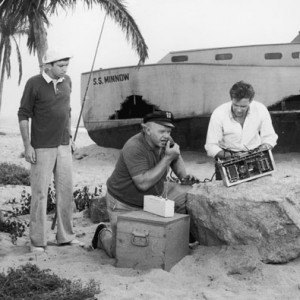 by SurvivingSurvivalism.com
by SurvivingSurvivalism.com
Why Are You Trying to Survive? With the news being what it is, the world has now come to the point at which a huge shake-up is undeniable E to anyone who has 2 cents worth of brain matter between their ears. So hoards are joining the stampede to become "survivalists". The movement has even spurred the development of the "survival industry", with commercials now being played on mainstream media stations for freeze-dried storage foods and solar generators.
There is an old saying, "If you don't know where you're going, any road will do." So if you are going to go the path of being a "survivalist", first you'll want to know where you are going E and why.
Plenty of alternative news outlets are trumpeting that "martial law" is soon to be implemented E and the facts they present in support can only lead to that conclusion. So everyone wants to survive martial law. But what is on the other side of the marital law? The reality is that martial law can't go on forever, but what will society/government look like after it has been dismantled?
If 9/11 caused so much restriction E by law or by fiat E of travel, of personal dignity rights, of speech, of redress of grievances, what will the next event (planned by man or by the hand of The Almighty) bring? Will you take the chip to be given your ration of food? If you allow your children to stand naked to be viewed by pedophiles in order to shop in a mall or fly on a plane, will you say no to anything else demanded of you?
Another major story all over the internet E alternative AND mainstream outlets E is that virtually the entire world's economy is about to collapse E again, a foregone conclusion. Not a matter of if, but when. Eventually, the creditors demand their due. So everyone wants to survive an economic collapse and the chaos that will bring. But what is on the other side of the collapse?
Putting aside all the sensationalism, putting aside all the hype and all the wishes, the most likely scenario is that a new monetary system, digital in format, no cash, will be instituted and run by the same bankers who run the dollar systems now E if not the same people, people with the same heart. They will tout the new system as being just like before (hush.... except that everyone's every financial move will be tracked, incoming and outgoing).
It will usher in the removal of personal privacy and the instilling of fear. Fear that stops you from doing something, not because it's not right, but because someone says you shouldn't do it E usually because it does not benefit them. Is that alright with you? Will you join that society? Is that why you want to survive E to end up just as entrapped, even more so, than you are now?
Far too many people die soon after reaching retirement. The reason for this is that they have spent their entire careers with the only goal being that retirement. They did not have a vision of life after retirement, and so they had none. An unfortunate fact.
We have met many people who believe that they truly want to be survivalists. They have many reasons for wanting to survive, based on what they understand of the news. But over time they show that they still want to have one foot on third base, and so will never make it to home plate. They really don't want their comfy lives upset, they don't want to have to give up their 62" plasma screen TV, they don't want to eat foods they actually have to cook, they want to be able to whip out their credit card at Trader Joe's forever...but they want to be out of the way when TSHTF, too. Their vision is to "hole-up" in a sanctuary until the noise stops, and then go back to the same rat race they were in before E the same rat race that got us all in the predicament in which we now find ourselves as a society.
So why bother? If your ultimate goal is to save your neck so that you can go back to the same old same old, why would you put yourself through this? It's like quitting smoking and starting again, knowing that you'll just have to go through the withdrawal all over again. To be more exact, an ancient book of wisdom talked of "a dog returning to its own vomit." Why put yourself through that? Why dislocate yourself and your family, mentally as well as physically, if you are ultimately happy right where you are?
If you are contented to fight your way through the morning commute so that you can be given a paycheck for performing a job you hate just so you can still afford your $8 Latte Enema at the local coffee chain and you can use that money to buy your kids every throw-away toy the commercials tell them they want, STAY THERE! You won't be comfortable outside of those bonds.
The right answer to the question proposed in the title is: I want to survive because there is a better way to live, regardless of what the world "out there" does or does not do. I want to be paid by nature for my own labor and that of my family (by blood or otherwise) in being good stewards of the Earth. I want to help others who are also willing to work toward a common goal, each lightening the load of the other. I want to look out my window and be invigorated by the Earth's natural beauty before my eyes, by the stars in the sky. I want to be judged by my acts of kindness, not by how much money I can obtain. I want to give something of real value to my children and to theirs.
It's not impossible. It's not a foolish wish. It is being lived now by those who have stopped complying with that which is wrong. It is being lived now by those who know the depth of their own power and use it, not to impose evil acts upon another but to lead a good and natural life for themselves. It is being lived now by those who choose to survive E not the chaos, but the beating down of the human spirit so that they may be a beacon to renew that spirit in light. It ain't easy E but it sure is worth it.
Dan and Sheila are the authors of:
Surviving Survivalism: How to Avoid Survivalism Culture Shock and hosts of the free podcast, "Still Surviving with Dan and Sheila", both available at http://survivingsurvivalism.com. For information about their survival community, or for other questions, they can be reached at [email protected].
]]>
This DVD contains every resource you will ever need to be prepared to survive in any situation.
Over 150+ books are on this DVD to teach you everything from how to navigate terrain, to starting a fire, to telling the time by the sun, to [...]]]>
 Ultimate Survival Collection. 150+ Books on DVD ROM. Over 36,000+ Pages!
Ultimate Survival Collection. 150+ Books on DVD ROM. Over 36,000+ Pages!
This DVD contains every resource you will ever need to be prepared to survive in any situation.
Over 150+ books are on this DVD to teach you everything from how to navigate terrain, to starting a fire, to telling the time by the sun, to hand to hand fighting and more. Learn how to cook and preserve food, raise animals, heal injuries, make shelters, raise bees, garden, live off the land, map read, sword fight, identify poisonous and edible plants and survive in any situation.
This DVD has all of the resources you need so you will never need another survival resource again. There is so much here that you could continue coming back to these resources for a lifetime of learning.
After all, there are over 36,000 pages contained on this DVD of learning manuals and books. You can't get more extensive than that! If you want to be prepared in any situation with all of the skills you need than this DVD-ROM has you covered. this is the only collection you will ever need to have everything covered. And no larger or more comprehensive collection exists anywhere on the web. There are even extra bonus materials available exclusively through this collection. You will find an extensive collection like this nowhere else.
All of these 150 books are included on the Ultimate Survival DVD-ROM:
1) DiGrassi Medieval Sword Manual - 1594 - 184 pages
2) Milch Cows and Dairy Farming - 1867 - 432 pages
3) Practical Water Farming - 1868 - 290 pages
4) Hints to Sportsmen and Travellers - 1874 - 353 pages
5) Modern High Farming - 1886 - 97 pages
6) Health and Comfort in House Building - 1890 - 217 pages
7) Practical Blacksmithing - 1891 - 294 pages
8) Forest Planting - 1893 - 264 pages
9) Trail and Campfire Book - 1897 - 381 pages
10) Dan Beard's Animal Book and Campfire Stories - 1907 - 634 pages
11) Irrigation for the Farm Garden - 1893 - 287 pages
12) Historic Icelandic Wrestling - 1908 - 38 pages
13) Dry Farming - 1909 - 307 pages
14) Practical Farming - 1907 - 128 pages
15) Forage Crops - 1900 - 304 pages
16) Cyclopedia of American Agriculture - 1910 - 779 pages
17) Yarns for Boy Scouts - 1910 - 228 pages
18) Harper's Camping and Scouting - 1911 - 421 pages
19) Principles of Irrigation Engineering - 1913 - 345 pages
20) Outdoor Handy Book - 1914 - 526 pages
21) Game Farming for Profit and Pleasure - 1915 - 65 pages
22) Feeds and Feeding - 1916 - 708 pages
23) Handbook of Rock Excavation Methods and Cost - 1916 - 86 pages
24) Hunting with the Bow and Arrow - 1916 - 161 pages
25) Successful Farming - 1916 - 1143 pages
26) Irrigation and Drainage - 1918 - 537 pages
27) Farm Poultry - 1919 - 395 pages
28) Poultry - A Practical Guide - 1919 - 192 pages
29) Scouting for Girls - 1919 - 580 pages
30) Farm Blacksmithing - 1920 - 97 pages
31) The Secrets of Jujitsu - 1920 - 83 pages
32) Trail Craft - 1920 - 239 pages
33) The Military Survival Manual - 676 pages
34) USMC Summer Survival Manual - 180 pages
35) USMC Winter Survival Manual - 187 pages
36) A-B-C of Gardening - 1915 - 136 pages
37) Bayonet Training - 65 pages
38) Boxer's Training Manual - 50 pages
39) A Manual of Beekeeping - 1875 - 250 pages
40) Tactical Combat Casualty & Wound Care - 177 pages
41) How to Avoid Getting Lost - 23 pages
42) Practical Rabbit Keeping - 1919 - 200 pages
43) Treating Fractures in the Field - 113 pages
44) Map Reading and Land Navigation - 246 pages
45) Plant Identification - 21 pages
46) Ranger Handbook - 327 pages
47) Wilderness Homes - Log Cabin Building - 1908 - 233 pages
48) Useful Wild Plants Of The US And Canada - 1920 - 275 pages
49) How To Produce Extracted Honey - 1904 - 36 pages
50) The Handbook of Soap Manufacture - 1908 - 172 pages
51) The Complete Herbalist - 1872 - 516 pages
52) The Outdoor Handy Book - 1914 - 531 pages
53) The Horse and how to care for him - 1911 - 200 pages
54) The Making of Leather - 1914 - 180 pages
55) The Horse's Foot and how to shoe it - 1879 - 99 pages
56) Underground Treasures Where And How To Find Them - 1881 - 177 pages
57) How To Succeed With The Home Orchard - 1920 - 102 pages
58) Hand Made Furniture And How To Make It - 1910 - 64 pages
59) Hand to Hand Fighting - 1918 - 85 pages
60) Harness Making - 1904 - 168 pages
61) Homesteading Two Prairie Seasons - 1918 - 302 pages
62) How to Swim - 1918 - 306 pages
63) How to Make Rugs - 1902 - 163 pages
64) How to Make Creamery Butter on the Farm - 1915 - 100 pages
65) How To Make Baskets - 1915 - 194 pages
66) How to Make a Shoe - 1882 - 132 pages
67) How to grow vegetables and garden herbs a practical handbook and planting table for the vegetable gardener - 1911 - 367 pages
68) Grape Culture and Wine Making - 1888 - 388 pages
69) Garden Vegetables And How To Cultivate Them - 1866 - 355 pages
70) Garden guide, the amateur gardener's handbook how to plan, plant and maintain the home grounds, the suburban garden, the city lot - 1917 - 255 pages
71) Combat Training with Pistols 68 pages
72) Close Combat 113 pages
73) Counter Guerrilla Operations - 254 pages
74) Eye, Ear and Nose Injuries 61 pages
75) Domestic animals - a pocket manual of cattle, horse and sheep husbandry with a chapter on beekeeeping - 1858 - 180 pages
76) Culpeppers Complete Herbal - Herbal Medicine - 1880 - 450 pages
77) Cottage Economy - Making Beer & Bread & Raising Livestock - 1833 - 68 pages
78) Cheese and Cheese Making - 1896 - 168 pages
79) A Practical Treatise on Coach-Building - Making Wagons - 1881 - 188 pages
80) Angling A Practical Guide - 1867 - 210 pages
81) Animal Fats and Oils - How to Use Them - 1898 - 240 pages
82) At home in the wilderness - 1876 - 317 pages
83) Boat Building And Boating - 1911 - 190 pages
84) The chemistry of breadmaking - 1917 - 230 pages
85) Boy scouts of America a handbook of woodcraft scouting, and life-craft - 1910 - 192 pages
86) Artificial Flies And How To Make Them - 1888 - 33 pages
87) Battle Fire Training - 1917 - 313 pages
88) American Boys Book Of Signs Signals And Symbols - 1918 - 250 pages
89) Canoe and Boat Building - 1889 - 263 pages
90) Beginners Book Of Gardening - 1911 - 88 pages
91) American Grape Training - 1893 - 95 pages
92) Beginner's bee book - 1919 - 179 pages
93) An Illustrated History Of Arms And Armor - 1911 - 595 pages
94) Aerial Navigation - 1918 - 64 pages
95) Campfire Cookery - 1921 - 121 pages
96) A complete manual of archery - 1878 - 259 pages
97) Elementary Forge Practice - 1917 - 148 pages
98) First Aid Dentistry - 1914 - 153 pages
99) Farm Machinery and Farm Motors - 1908 - 513 pages
100) Flying Machines Construction And Operation - 1910 - 221 pages
101) Motor Bicycle Building - 1906 - 160 pages
102) Tested Formulas and Useful House and Farm Recipes - 1910 - 148 pages
103) Prospecting For Gold And Silver - 1895 - 207 pages
104) Spices And How To Know Them - 1909 - 179 pages
105) The American gardener - 1856 - 230 pages
106) The Art Of Soap Making - 1884 - 260 pages
107) Field Antenna Handbook - 188 pages
108) Standards In Weapons Training - 179 pages
109) The American Boy's Handybook of Camp-Lore and Woodcraft - 1920 - 270 pages
110) Practical Blacksmithing Vol 1 - 1889 - 224 pages
111) The Forcing Fruit and Kitchen Gardener - 1802 - 427 pages
112) The bee preserver or, Practical directions for the management and preservation of hives - 1829 - 134 pages
113) The Book of Camping and Woodcraft - 1906 - 321 pages
114) The amateur's practical garden-book - 1900 - 250 pages
115) Sniper Training - 329 pages
116) Combat Skills - 177 pages
117) First Aid to the Injured - 1915 - 215 pages
118) Fertilizers - How to Make Them - 1885 - 116 pages
119) Martial Arts - 114 pages
120) Educational Needlecraft - 1911 - 136 pages
121) Farm Buildings With Plans - 1917 - 256 pages
122) Environmental Injuries - 91 pages
123) A Practical Manual Of The Compass - 1916 - 146 pages
124) A Treatise On Belts and Pulleys - 1885 - 271 pages
125) Bees for pleasure and profit - 1921 - 122 pages
126) Toy-making at home how to make a hundred toys from odds and ends - 1915 - 85 pages
127) Combat Water Survival - 60 pages
128) The plain path to good gardening or, How to grow vegetables, fruits, & flowers successfully - 1871 - 330 pages
129) Preventive Medicine - 177 pages
130) Camp life in the woods and the tricks of trapping and trap making containing comprehensive hints on camp shelter - 1881 - 300 pages
131) Baker's secrets - 1885 - 36 pages
132) Terrain Analysis - 205 pages
133) Simple cooking of wholesome food for the farm home - 1913 - 30 pages
134) Woodwork for Beginners - 1916 - 78 pages
135) Muscle building practical points for practical people - 1905 - 43 pages
136) A practical treatise on the manufacture of vinegar - 1914 - 543 pages
137) Carpentry for beginners - 1917 - 248 pages
138) Home canning and drying of vegetables and fruits - 1918 - 34 pages
139) Knitting And Sewing - 1918 - 207 pages
140) The Pocumtuc Housewife - To which are added plain directions for soap-making, brewing, candle dippings clear starching, caring for the sick and all duties of a careful housewife - 1897 - 51 pages
141) Meat Curing and Sausage Making - 1922 - 309 pages
142) Farm blacksmithing - 1904 - 104 pages
143) Bread-making - 1884 - 64 pages
144) Complete sewing instructions - 1917 - 94 pages
145) Dairy farming - 1912 - 208 pages
146) Physical Security - 317 pages
147) The art of fencing - 1915 - 158 pages
148) The nursery-book a complete guide to the multiplication and pollination of plants - 1892 - 304 pages
149) Leather Working - 1904 - 160 pages
150) Warrior Skills - 695 pages
AND ALSO INCLUDED ARE THESE BONUSES ON THE DVD-ROM!!
Without the right tools and information, it could take you years and cost you a small fortune to experiment and find the right formula for growing great organic foods without the need to use chemicals. Instead of spending a fortune on so-called experts or knocking yourself out with the old trial and error method, there is an easier way to enjoy the organic foods you want, homegrown, without spending a fortune on them at the market. The secret is organic compost. You get everything you need to understand how to create organic compost! Nothing, absolutely nothing, is left out. Absolutely everything anyone would ever need to learn how to successfully make organic compost is contained within this impressive work. This newly released work available exclusively through us is the quickest and easiest way to begin successfully gardening today!
YOU WILL ALSO RECEIVE THIS BONUS!!
How would you like to save hundreds every year on your utility bills? The money you save can be used to take that vacation you have been waiting to go on! Learn simple tasks you can do around the house to save on your electric bill. The average family currently spends $1600 each year on utilites, and that amount can be halved with this information. In "Everyday Energy Tips" you will learn how to find energy leaks in your home, low cost ways to seal your windows against energy loss, how your landscaping can save you money and how to determine if you have enough insulation and where to add insulation for the most savings. And you will learn many more money saving tips! The trick to getting the most savings is to use a whole house approach, from the roof, walls, and insulation that enclose it to the appliances and lights inside, using the simple and practical tips you will find in Everyday Energy Tips.
YOU WILL ALSO RECEIVE THIS BONUS!!
Learn how to make all your own items for pleasure or profit with this complete course on wood turning! You will learn how to care and use the lathe, what tools are best to use for wood turning, how to spindle turn and how to figure the diameter of pulleys. You will also learn how to do shoulder cuts, taper cuts, convex cuts and how to measure for length and set up the lathe for work. This complete course will show you how to make use of templates to create picture frames, napkin rings, candle sticks and much more! All you need to become a pro at wood turning is here!
YOU WILL ALSO RECEIVE THIS BONUS!!! (YES - THERE IS STILL MORE - THIS IS THE MOST EXTENSIVE COLLECTION ANYWHERE GUARANTEED!)
Common Birds of North America is the perfect beginners guide to identifying the most common birds. With this illustrated guide you will be able to readily identify everyday birds. The birds depicted in this book are valuable reminders. We need them; we need the same clean and wholesome environment upon which they rely; we must work to ensure their continued well-being (and that of other migratory and non-hunted species) so that our own future can be assured. You will find this guide to be your first step in appreciating the hobby of birding.
YOU WILL ALSO RECEIVE THIS BONUS!!!
As you learn to enjoy the beauty of birdlife around your home, you may wish to improve the "habitat" in your yard so that more birds will visit your property. It doesn't matter where you live - in an apartment, townhouse or single family dwelling, in the city, suburbs or country. Just stand still and you'll hear them: wild birds. It is hard to imagine life without them. And you can watch them just about everywhere. The most convenient place to start is right in your own yard. Habitats For Birds tells you how to create an inviting place for birds to visit and enjoy.
YOU WILL ALSO RECEIVE THIS BONUS!!!
Now that you know how to attract birds to your backyard and what birds you are attracting,why not treat them to some bird cuisine that you can cook up in your own kitchen? Recipes For The Birds gives you 50 easy to make bird treat recipes. Everything from bird cookies to bird salad, birdie breakfast to bird pizza, you can create a cuisine that the birds will just love! Recipes For The Birds will make you the envy of the neighborhood when the birds start flocking to your own 5 star restaurant for the birds in your backyard.
YOU WILL ALSO RECEIVE THIS BONUS!!!
As your appreciation of birding grows, as we know it will, so will the need for more advanced information on the different species of birds. The Birding Manual provides just that with over 700 pages of in-depth descriptions of every North American bird. The Birding Manual takes you from being the casual backyard birdwatcher to becoming an avid birdwatcher. It won't be long and you will be planning trips to bird sanctuaries and other parts of the country, so you and your family can hone your birdwatching skills and The Birding Manual will be one of the first things you will want to take with you.
]]>One of the biggest questions we get on our website, survivingsurvivalism.com, is how to begin achieving off-grid/energy independent status. Not everyone can afford to go out and buy a 5 kilowatt solar array and the associated batteries. This article is written [...]]]>
 10 Ways to Keep Your Power and Computers Operational When TSHTF, by Jesse Gendron, survivingsurvivalism.com
10 Ways to Keep Your Power and Computers Operational When TSHTF, by Jesse Gendron, survivingsurvivalism.com
One of the biggest questions we get on our website, survivingsurvivalism.com, is how to begin achieving off-grid/energy independent status. Not everyone can afford to go out and buy a 5 kilowatt solar array and the associated batteries. This article is written for those of you who want to begin your road to energy independence, as well as being able to use your laptop, mobil devices, etc..
1. Switch to Linux
Linux is an operating system -the way that Windows is an operating system -usable on PCs, MAC and Android devices. Linux's biggest advantage, other than being free, is that it does not allow viruses to infect your system. Any change to your system must be verified with your system password, so a virus cannot slip in. Applications such as word processing, video editing, spreadsheet programs and just about anything you can do on a Windows system are all also free. The goal of Linux as a community is to make software available to anyone who can use or develop it.
One if its biggest advantages is the lack of anti-distribution or pirating measures like product keys or need to activate. As Windows operating systems require online activation, if the Internet is for any reason not available making activation impossible, you could potentially be unable to restore your hard drive without the ability to activate in 30 days.
2. Set up local communications with routers.
So, the internet is down and your modem rendered useless. What ever you do, don't dispose of that wireless router. This can be an indispensable device for keeping local communication possible. This can be done by setting up a VPN (Virtual Private Network).
The installation process of a VPN will depend on which operating system you use. If running Linux, you can easily set up an alternate to a VPN called IPTux. It is less secure than a VPN, but simpler. This simple to setup piece of software works more or less plug and play. Have your router powered up and broadcasting and have all PCs that receive your wi-fi signal run the IPTux application. To use it, just start the program in the system hooked up to your router (does not have to be connected to the Internet) and start chatting. This is a simple and effective way to keep in touch with a small community in a blackout scenario and can go as far as you have repeaters for. If you are concerned about securing your communications, a VPN would be recommended.
3. Keep alternative power systems, even if you're tied into the grid.
There's no reason not to use solar or any other type of free energy, even if your needs are more than a simple off-grid power system can handle . You could still have your lower wattage devices running on solar or wind or other power source and not only save on your electric bill, but be prepared to still have basic appliances working if power is unavailable. It is always a good idea to dabble with off the grid technology. The more you put in to it, the more prepared you are to handle potential blackouts.
4. Have at least one man-powered generator for low sun/wind days.
With the many natural forces that you can harness as clean electricity, there will still be days when mother nature needs a break. If you want to keep your power more reliable than the forces of nature, itEs good to have a hand crank, stationary bicycle, treadmill, or anything you could use to manually spin a generator. Something as simple as a battery operated drill gun can be used to generate safe, reliable, clean power. This can be crucial. You may have a dire need of your power and be forced to wait until more favorable weather. You can avoid this by using a power source that runs on calories, the most simple of which is a hand crank. A generator with a crank handle can produce power right away. The stationary bicycle can also be an excellent choice. A treadmill however is unique because it already has a motor connected to it that can be reversed with blocking diodes.
Photo Credit -DuroMax 10,000 Watt 16 HP OHV 4-Cycle Gas Powered Portable Generator Electric Start
5. Save important software and operating systems.
You can download a Linux operating system and keep it on a flashdrive for posterity. Many contemporary Linux users will just download the software each time they restore, but you may eventually want to restore your hard drive or update your Operating System when the internet is not available. In this case, you want to have any software, operating systems, and data files backed up. ItEs as simple as saving packs and folders to a thumb drive.
6. Become familiar with your computers finer components and keep spares.
Generally, you wonEt have to take anything off your motherboard but, for example, you can look at your power supply. This has one component in particular that is normally the cause of the power supply itself coming to an untimely demise ... that would be a voltage regulator. This very small, three legged piece of silicon can be replaced on a board level if youEre somewhat familiar with a soldering iron. Notice the serial number on the regulator and make sure you have a few to spare. Other small, easily dispensed parts are, DC input jacks, diodes, resistors, peripherals (internal and external drives, etc.), and such.
7. Chelate Your Lead Acid (6 and 12 volt) Batteries. NOTE: Use extreme caution when doing this...use chemical gloves and eye protection. If you are not comfortable with this process - don't do it! Do not try to do this with a sealed-cell battery.
This is a very simple and safe chemical process. What you will need will be battery acid (available at auto parts stores), distiled water, a 12v power source, baking soda and a supplement available in health food stores known as EDTA. In a nutshell, what you do is empty old the acid out of the battery and cover it with the baking soda to neutralize it. Rinse the batteryEs cell with distiled water and drain it, and again cover with baking soda. Once youEre sure the acid is properly rinsed out of the cell, add a mixture of EDTA and distiled water. Hook the battery up to your solar panel or other 12 volt source and allow to charge until the battery is at 12.7 to 13.4 volts. The EDTA combined with the electrical charge will remove any minerals clinging to the lead plates. Rinse the cells again with more distilled water and cover the rinse water with baking soda. Then add the new acid and distiled water mixture.
This will bring new life to old batteries. It is still important not to do this unnecessarily. You may waste acid if you do this too often and you will gradually eat away more lead as you repeat this process.
8. Regularly recondition lithium batteries.
This method of restoring smaller batteries used for your portable electronic devices (e.g. laptops, cellphones, mobile devices) is simpler than it may sound. It is done entirely by tricking the software. Turn off any of your operating systemEs functions used to save battery power and allow the battery to completely discharge. Once youEve done this, plug it back in and charge it, uninterrupted, until completely charged. It is vitally important not to unnecessarily stop a charge before itEs completely done. Your battery may eventually lose the ability to charge up passed a certain point if it gets used to being partially charged (battery memory).
9. Did I mention back up?
Okay, I did. But this is, as I said, crucial if the Internet becomes unavailable. Always have duplicates or even triplicates if you find it absolutely necessary to have access to a particular file. Backing up is rarely punished and often rewarded.
10. Keep devices in a grounded box if you're concerned about an EMP (Electro Magnetic Pulse).
If you're concerned about an EMP rendering your electronics to mere plastic and silicon, maybe a shield is in order. The design is pretty simple. You want to place your electronics into a metal covered box (it can be a cardboard box covered with aluminum foil), lined with a non-conductive foam rubber and grounded. This may protect your devices from damage from an unexpected "space goat fart".
For further explanation of these tips and a host of others, look for the upcoming e-book, Off The Grid IT E The Practical Guide to keeping your power and computers operational when TSHTF.
About the Author: Jesse Gendron is co-author of Surviving Survivalism E How To Avoid Survivalism Culture Shock and co-host of the podcasts, Still Surviving.
]]>Thank you for the wonderful response to our article, Top 8 Deadly Myths About Survival. Many of you wrote asking for more information about the day-to-day life. Here's a peek at a typical non-winter day.
It's noon-ish. The first round of chores are pretty much done. So far today, [...]]]>
 A Day In the Real Life, by SurvivingSurvivalism.com
A Day In the Real Life, by SurvivingSurvivalism.com
Thank you for the wonderful response to our article, Top 8 Deadly Myths About Survival. Many of you wrote asking for more information about the day-to-day life. Here's a peek at a typical non-winter day.
It's noon-ish. The first round of chores are pretty much done. So far today, here is what we've been up to:
Woke up at 4:00 a.m. because a pack of coyotes was howling too close to the chicken coop and we had to let the dog out to protect them. Then we went back to sleep to the sound of the dog barking. Well, okay. That's not exactly a daily happening, but it did happen last night!
Around 6:00 a.m. we get up for real. I light the kitchen wood stove to warm up the house and get breakfast going. Breakfast is usually fresh farm eggs, pancakes, biscuits, cracked wheat cereal or such.
We grind our own flour by hand. That means attaching the grain mill (we use and recommend the Wondermill Junior Deluxe Hand Grain Mill) to the kitchen table and the guys taking turns cranking for about ½ hour to an hour, depending on how much flour I think I'll need that day. Sometimes we add rice flour with the wheat, and rice is even harder (and slower) to grind than wheat berries. The guys are getting such bulging biceps! If you'd like to know how to use that flour for biscuits, etc., we've got a great recipe section in our book, Surviving Survivalism E How to Avoid Survivalism Culture Shock.
While breakfast is being made, the guys feed the chickens yesterday's leftovers, and feed the dog and cats. Cats are an absolutely necessary tool in the wilderness. They not only keep the mice at bay, they take care of snakes and large bugs, too.
Also while breakfast is made, the guys tend the garden and greenhouse. They water it, feed it with a little extra compost and prune the suckers off the vegetables. Then they jump on the Internet to check things out...and see if the outside world is still in existence!
Breakfast is done about 8:00 a.m., when the guys go out to cut and gather wood, tote water from the large storage tanks into the house and into the garden for afternoon waterings (don't forget we live in the desert) while I clean the house E clean the kitchen, make the bed, sweep the floor (a never ending battle between us and the dust!) Before I do the dishes, we need to make sure the gray water cllection barrel under the sink is emptied to be used for plant watering or mixing mortar. I want to note here that we do not assign chores based on gender, but by ability and availability. Many days I have something else taking my time and by the time that chore is done, the kitchen and cleaning chores have been done by Dan or Jesse. I can't help cut the firewood, so since the dishes need doing, I do them E with a happy heart. If I am interrupted in the middle of cooking, one of the guys steps in to take over so I don't have to worry about it while I'm busy with something else.
While I'm cleaning, I put up a big pot or rice for later meals. Usually we'll fry up the cooked rice with seasonings, herbs, maybe scramble an egg or two in it for lunch. Sometimes we make fried rice balls. Sometimes we make veggie gravy to go with it. You really can do a lot with just a few ingredients!
After I'm done cleaning, I get the bread dough mixed and rising. I make two loaves of peasant bread (a very simple bread, only flour, water, salt and yeast in the ingredients list, baked free-form E no loaf pan) each day. They're usually both gone by the evening, but if I'm lucky I have a half loaf left for toasting for breakfast the next day. Some days I make whole-wheat tortillas instead.
By mid-afternoon (often earlier) it's time to get dinner going. Often it's lentil chili, or home made pasta, boiled then sautéed with our garden vegetables, or beans and rice, or stir-fried veggies, or maybe this week we've got a chicken for soup with fine noodles.
After dinner we generally watch DVDs to just chill out.
In between chores, at any time of day, we take a break here and there outside, under a juniper tree, enjoying the light breezes and just stopping for a moment to smell the roses E well, cactus anyway!
In addition to the daily chores, we experience some things that throw our schedule off -
- The toilet is backed up and needs fixing.
-No power because of clouds several days in a row.
-Having to stay indoors more for a few days because of smoke conditions in the air from distant wildfires.
-Someone gives us a gift of a ¼ of an elk and we spend the day butchering, pickling and feasting!
-Some days it's the day we plant the garden.
-Some days we pump water from the well into the storage tank.
-Some days we do laundry E during "monsoon season", July and August, that means we put the dirty clothes into a barrel of soapy water, stir them around, squeeze them by hand and lay them, soapy, along the slash fence, waiting for the next rainstorm to rinse them and the next morning's sun to dry them.
Add to that in winter months that we are constantly filling both wood stoves to keep warm. Although, we don't get out of bed till one of us is warm enough to brave the cold and light the first fire of the morning! We have woken up to temperatures of 12 degrees E in the house!
In between all this, Jesse is building a new house for himself, made from local rocks and local mortar (adobe) while we write more books, essays and articles and produce a podcast.
I often ask this questions of people considering the self-sufficient lifestyle: Even if nothing happens in the outside world to change things from how they are today, wouldn't you want to live this way anyway?
]]>Some may call it a self imposed exile, but several years ago we separated ourselves from so-called “society”. It's a 90 minute ride to even get to a town from here, mostly across dirt ranch road, some of it “primitive” (white knuckles). About a year ago, our Ford Bronco died, [...]]]>
 An Unusual Perspective, by Surviving Survivalism
An Unusual Perspective, by Surviving Survivalism
Some may call it a self imposed exile, but several years ago we separated ourselves from so-called “society”. It's a 90 minute ride to even get to a town from here, mostly across dirt ranch road, some of it “primitive” (white knuckles). About a year ago, our Ford Bronco died, and we got swindled out of $3000 for a replacement truck that...well, long story, but suffice it to say we haven't had a vehicle since then. We haven't left the ranch in about a year. The handful of times we had visitors since then, they have been so kind as to bring us up some small amount of groceries for a “treat” or two, but we gained something very special in that time – perspective.
It's not like we've always lived so remotely and we don't know what the other side of the world is like. Many of the past 25 years we lived in suburbia, raising our kids and working our successful business. We traversed the country more times than I can count as we drove to the seminars we taught, kids in tow, giving them a better education than they could have gotten in a classroom. We stayed in major cities when we, too, were involved in the never-ending rat race. We went to restaurants too crowded to enjoy a meal, we took the kids to the requisite amusement parks, we stayed in hotels that didn't realize their business was hospitality. But our vision was always to walk away from that life, towards one more connected to the nature part of human nature. To live a more natural life, abiding by natural law – which is the only absolute law under which humanity lives, anyway, whether we know it or not. As our culture fights natural law, believing that it can overcome the natural consequences of our actions, we simply screw things up for ourselves.
In fulfilling our vision, in breaking away from riding that wave all the way to the shore, we halted those pieces of personality from their natural path within the human psyche – their final destination to dehumanize those caught within it.
What we see from our vantage point is too many people living around millions of other people and having no connection to them whatsoever. Thirty years or so ago, and for a couple of years, I commuted from New Jersey to my job in Manhattan by train, walking through Penn Station at the rush hours to get to and from my office. This was about the time that the Sony Walkman (a personal audio cassette player if you're really that young!) was developed. Daily I saw hordes of people, walking around – no, shuffling around, it was too crowded to really walk – who believed that if they had their Walkman headphones on in that sea of bodies they would be carried away to a place that was not so frighteningly crowded. They actually felt like they had some kind of privacy while trying to catch the next train home. It was like thinking that if you close your eyes, the world no longer exists.
What we see from our vantage point is too many people trying so hard to keep their heads above water that they are sure to drown. It's so hard these days to just make a mortgage or rent payment, hard – and soon to be much harder – to feed yourself and your family a satisfying meal (let alone what is available as food) that the population can do little else but think of themselves. By financial and other manipulations by TPTB, we have been taken from a prosperous culture with a bright and hopeful future to a slave society with no future other than to push papers around, serve a hamburger, or take a government job in which we can get to feel superior to the masses, so that we can pay for our own room and board while any spare change goes to the top echelons, leaving most people with no time to be kind and considerate to themselves nor to others. It's an attempt to drain the life's blood of your soul.
What we see from our vantage point is too many people who have no soul left, no more light of intelligence, common sense or even lust for life left in their eyes, following the daily routine they have been given to follow without question of its rationale. The masses wait placidly on line to be physically molested or irradiated for the privilege of boarding an airplane, watching silently as the 87 year old granny is strip searched for a fabled threat. Too many drivers go past and don't really see the newly stacked jersey barriers on the highway that wait their turn to be used to choke off the traffic flow. Or they stop dutifully to offer proof of license and insurance for no reason other than the sheer control factor (can I make you stop along your journey?) to the goons who guard the “king's roads”.
What we see from our vantage point is too many people who think that if something doesn't affect them, it has no relevance in the world at all. So it's alright to disrespect those who offer you kindness, to confuse that kindness as something to be tread upon because that disrespect somehow makes you a rung further up on the ladder of society. As long as they don't have to give up their 62” plasma TV or their nightly rack of beer, all is well with the world.
Well, all is not right with the world. It's been orchestrated by those who wish to make us forget that we are all one. They do so because that oneness is our power. Each of us is connected to the same universal energy. We are all made of the same electrons, protons and neutrons and so are the stars and planets that surround us. And there are energies all around us of which we do not even conceive at this juncture in history. So we all have something at stake. We are all one.
There is a Cardinal Rule for humanity, based on allowing higher energies to flow... Do unto others as you would have them do unto you. It's not a matter of how big your house is. It's not a matter of what church you attend. It's not a matter of what you learned in school. It's a matter of how much kindness and positive intentions we give to each other. And do this good for others not because they are the same religion as you, not because they are the same color as you, not because they are in the same financial stratus as you – do it because we are all brothers and sisters in humanity. What you do to the least of us is done to all of us, so choose what you do wisely.
TPTB are about separating us. They do this because separately we are easily dominated. What connects us is the humanity we show each other:
hu-man-i-ty n. pl. hu-man-i-ties
1. Humans considered as a group; the human race.
2. The condition or quality of being human.
3. The quality of being humane; benevolence.
4. A humane characteristic, attribute, or act.
Human benevolence (a positive act toward another human) is what we want to try to achieve. Without one bullet being fired, if we can learn this one thing – to consider another before ourselves and to accept the kindness of others – we could defeat TPTB in a single day. As in the final scene of the movie, “V for Vendetta”, when all the people come together, unarmed but for their understanding of righteousness no bullets, no cannons, no goon squads could defeat them.
The next time you have a chance, smile at someone you don't know. The next time you have a chance, do a kindness for someone that in no way could ever benefit you, without them even asking. If we have love for others as well as for ourselves in our hearts and take action on that, we have higher consciousness. Without it we are stuck in lower consciousness. Don't allow TPTB to take what is rightfully yours – the understanding that we are all one and that understanding is power. Show some humanity today and reap the rewards.
NOTE: If you are considering making a move but don't know where to go, we have one more space available in our small survivalist community in New Mexico. If you would like more information, please contact us at [email protected]
Whether or not you are considering changing your lifestyle, please feel free to email us there with any questions you may have. We are always happy to help others. That's what it's all about, isn't it?
]]>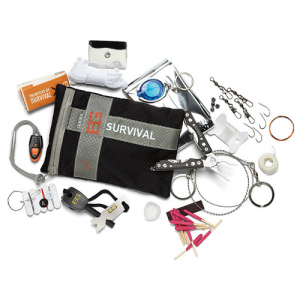 These days, it’s hard to ignore all of the doomsday, apocalypse now talk—especially as the so-called “Mayan calendar” quickly winds down. But, whether you believe the hype or not, it has brought up a very important point. Many people today are simply not equipped to fend for themselves or survive, should the need arise. Let’s say tomorrow something happened that immediately robbed us of all of the modern luxuries we have become dependent on, would you be able to survive?
These days, it’s hard to ignore all of the doomsday, apocalypse now talk—especially as the so-called “Mayan calendar” quickly winds down. But, whether you believe the hype or not, it has brought up a very important point. Many people today are simply not equipped to fend for themselves or survive, should the need arise. Let’s say tomorrow something happened that immediately robbed us of all of the modern luxuries we have become dependent on, would you be able to survive?
If you’re like the majority of other people, most likely not. And, it’s not that we don’t have the capability to, because we all know our ancestors lived off the land, but we have become so accustomed to our easy way of life, we must re-train ourselves to be self-sufficient. Luckily, numerous schools and courses have popped up over the last few years that specialize in teaching survival 101. So, if you’re looking to get back in touch with your instinctual, survival side, you might consider enrolling in one of these.
Bushcraft & Wilderness Survival Courses
Offering potential college credit to its students, the Bushcraft & Wilderness Survival Courses, taught through the Jack Mountain Bushcraft School cover many vital skills such as carving, weather forecasting, basketry and more. Students will leave with a working knowledge of several tools and a sense of resourcefulness many have lost. From learning about the medicinal and nutritional properties of plants to gaining a better understanding of local animal species, students walk away with a better awareness of nature and ecology as a whole.
Alderleaf Wilderness College
From permaculture to wildlife tracking, there’s little that the Alderleaf Wilderness College doesn’t cover. Offering students a wilderness certification program, this school is perfect for anyone looking to broaden their horizons. So, whether you’re looking to become an outdoor professional or just want to strengthen and build your survival skills, this school’s courses are the thing for you.
Prepper College
Just as the name implies, this college covers anything and everything a “prepper” could want or need to know. With hands on experience and instruction from qualified teachers, students who attend here will no doubt leave in touch with their inner prepper. From survival tactics to all-around preparedness, this school has it all.
So, if you’re looking for a change of pace and want to reconnect with the land like our ancestors, consider enrolling in one of these courses. You won’t be sorry!
Mariana Ashley is a blogger and freelance writer, whose posts at www.onlinecolleges.net offer an online schools guide for prospective students and parents. She welcomes comments via email at [email protected].
(Picture Credit www.uncrate.com)
]]>For the last several years, our family – Dan, our son Jesse and I – have been living what some may call the “survivalist” lifestyle. Actually, we live the off-grid (so far off the grid that there is no land line and no cell phone service available), self-sufficient life. We're not here to [...]]]>

For the last several years, our family – Dan, our son Jesse and I – have been living what some may call the “survivalist” lifestyle. Actually, we live the off-grid (so far off the grid that there is no land line and no cell phone service available), self-sufficient life. We're not here to get away from the world for a few days while chaos happens and calms down – we don't think that's the way it will go, anyway. We're here because we have chosen to separate ourselves from the rate race, the system, and not be swept away in the tide of what we see as society running amok. This is not a temporary lifestyle to us, it's a wonderfully peaceful, sometimes difficult and always rewarding life. Regardless of what does or doesn't happen “out there”, this is how we choose to live.
We were basically “city folk”. But over the past 20-plus years, we formulated, clarified and realized our vision to make the transformation to our current life. We understand the fear and panic many are now feeling in contemplating making a lifestyle change in a short time because world events require that it be done. That is why we wrote our book, Surviving Survivalism – How to Avoid Survivalism Culture Shock
Survivalism- How to Avoid Survivalism Culture Shock $4.95 e-book- Amazon (About 199 pages)
At one point we chose to lease parts of our land to form a small community of “like-minded” people (I would rather call it “like-spirited”) to help each other make it through what we know is coming down the pike soon – geo-politically, earth-chages-wise, etc. In that search for the right people (who we eventually did find) we met many types of self-proclaimed “survivalists”, most of whom were in reality “survival tourists”, a phrase our son coined for those who only wanted to investigate survivalism just deeply enough to find the reason they couldn't/shouldn't do it (“Phew, I almost had to wash my dishes by hand!”).
We met people who spent lots of money on land, a shelter and storage foods, only to forget the prepare the most important thing – their minds! It's going to take so much more than a gross of toilet paper to save your ass. You're going to have to put on your “big boy pants” and deal with things like going out in the cold to get firewood, learning to make pancakes with just flour you've ground, an egg and water and wearing the same clothes for years without falling apart (neither the clothes nor you!).
The things you might think are important now will seem silly to you when you're more concerned with the dailiness of your chores that simply keep you alive through a cold winter. We met people who didn't think they could live without their 62” plasma screen TV. We've been watching the same 1200 piece library of DVDs on our laptop for our evening's entertainment for several years. We know the scripts backwards and forwards, but it takes our minds off the day's work when we need it.
Before we were able to have our well drilled, we were depending on a local water delivery service (2500 gallons at a time, not a 5 gallon visit from the “Culligan Man”) who suddenly decided that he didn't want to make the rough trip to our ranch any longer. We had to make our last 500 gallons last throughout a brutally cold winter, washing dishes with 2 gallons a day, washing our hair about once very 2 weeks. But you find that you make it through.
Here are The Top 8 Deadly Myths about Survivalism:
1. It's just like camping. It's nothing like camping. When you go camping, if you can't take a shower for a couple of days, no problem, you'll take one when you get home. This will be your home, and you'll have to figure out how to keep your body (and clothing) clean all year long, in the cold, snow or wind. You can do without anything for a couple of days, even weeks, on a camping trip or you can jump back in the car and go to the nearest grocery store to pick up what you need. What if there were no grocery store available? How will you feel when your daily habits are interrupted, not just for a few days trip, but for the foreseeable future?
2. You can buy enough food and supplies for forever. No, someday what you have will run out. You'll have to learn to grow and/or gather new food supplies and to learn to use what you have, even if that means pancakes without baking powder. Someday you will have to wipe your butt with a washable rag instead of disposable toilet paper. Someday there will be no gas to get to the store and the store won't have anything on the shelves anyway.
3. Your neighbors will gather around and help each other. Think about your neighbors who haven't got a clue – or can't bear the thought – about their comfy suburban lives changing when the reality of where society is going hits them “upside the head”. What if your neighbors can't get their daily supply of cigarettes, beer, Prozac, soda pop, etc., etc., etc.? Are they going to be the kind of people you can depend on? For how long?
4. If I buy enough gadgets (mini washing machine, generator, solar tracker, ) I'll be OK. If you truly believe that society is in for a big shake up, you'll realize that this is not a time to spend money unnecessarily, but to put every penny you can into what is practical. Gadgets are going to break down and then you will have to learn to live without them anyway. Why not learn now?
5. I can get to my survival location when TSHTF. This is the most flawed – and perhaps the most popular – plan: thinking that when all hell breaks loose you will know in advance enough to travel the hundreds of miles to your survival location. When the door slams shut the highways will be blocked, the urban and suburban streets will be blocked and patrolled and no one will be going anywhere!
Even if your survival location is only a few miles away, you probably won't be able to get there. If you truly understand the need for being “survival-minded”, why not begin living the self-sufficient lifestyle NOW? Learn what it really means to live off-the-grid NOW, not when there is chaos all around you. You may find that it's a much better lifestyle than the one you are living now.
6. I can convince my “significant other” that this is the right move. No, you can't – and you shouldn't. All you can do is give them information and allow them to do with it what they do. People either get this or they don't. It's not for everyone. This goes for all family members. I'm not saying go or don't go without them. That's an individual, circumstantial decision and action. If all members of your family are not on the same page, you'll have to determine what to do. Staying where you are may be your choice. Just do it as an informed decision.
7. I don't need to prepare a place. I'll just grab my Bug-Out-Bag and find a cave somewhere. How many others do you think have that same plan? Especially those who live near caves, already know where they are and already expect to be occupying them? And can your bug out bag hold what you really need for an extended period of time?
8. My kids will be bored. Your kids will be learning so many new ways of living, so many daily activities and chores, connecting with nature in so many new ways, they won't have time to be bored. Allow them the freedom to discover things like what bugs are in the grass around your home, what plants grow, what wildlife is still abundant on this beautiful land...if your attitude is one of wonder, not worry, so will theirs be. Help them look at this as an adventure, not a burden.
If you do not yet understand why it might be time to make a move from your comfy, familiar, suburban lifestyle, you're not watching the news. Or maybe you are only watching mainstream news, who tell you “everything is as it should be.” It's not.
Friedrich Nietzsche was right... “That which does not kill us makes us stronger.” It's amazing to see just what we are capable of living through, of accomplishing when we depend only on ourselves. When there is no safety net, sometimes you just learn to fly.
NOTE: If you are considering making a move but don't know where to go, we have one more space available in our small survivalist community in New Mexico. If you would like more information, please contact us at [email protected] Whether or not you are considering changing your lifestyle, please feel free to email us there with any questions you may have. We are always happy to help others. That's what it's all about, isn't it?
]]>Should disaster ever strike, it's important to have a number of preparations and plans in place. The last thing you want to do is wander through life aimlessly, completely unprepared in case something horrible were to happen or strike. I'm not trying to be a buzzkill, but it's quite likely you'll encounter emergency circumstances in [...]]]>

Should disaster ever strike, it's important to have a number of preparations and plans in place. The last thing you want to do is wander through life aimlessly, completely unprepared in case something horrible were to happen or strike. I'm not trying to be a buzzkill, but it's quite likely you'll encounter emergency circumstances in your lifetime and the only way to be prepared for such unfortunate circumstances is to have a plan of action in place.
One area I like to focus much of my disaster planning on is on emergency food. I stock up my outside pantry with canned foods and bottled water every so often, but recently I've also started to grow a garden as well. I've learned that gardens are quite useful and helpful, especially in the direst of circumstances. If you don't already have a garden, here are three reasons why it might be a good idea to start cultivating one for emergency situations.
Teaches Self-sufficiency
If your sole chance of having breakfast, lunch, or dinner depends on you nurturing your crops, you better believe you're going to be diligent in taking care of your garden. Before I ever planted my backyard garden, I depended upon grocery stores and local farmers markets to provide me with food. But, what would happen if all those things were taken away from me? Would I be able to survive? I'm not so sure. Growing a garden teaches you to take care of yourself and understand that mass-food production is a luxury that none of us should depend upon forever.
Unites Community Members
Although I have a home garden, I sometimes volunteer at the church community garden right down the street from me. Every week I go to help out at the garden, I'll see a handful of neighborhood members watering, planting, and working the garden. Disasters have a way of creating mass fear that may make many of us want to act selfishly, but the only way to survive emergency circumstances is to work together. Community gardens are extremely useful when people need to feed themselves in the midst of emergencies. By getting an early start and growing a garden with people in your community, you'll understand how to handle food sourcing and distribution if disaster should ever strike.
Cheaper Than Purchasing Food
I'll stock up my emergency pantry every few weeks, and the endeavor is never cheap. Sure, canned and dried foods last for a while, but nobody wants to keep dishing out dollars for just-in-case-we-need-it-one-day food. Not only do they usually just sit on your pantry shelf, canned foods go bad eventually. Gardens are great in providing fresh, healthy food that doesn't cost much. Seeds are cheap, and as long as you don't mind putting in some menial labor, you'll be able to save much more money growing a garden as opposed to buying canned and dried foods all the time.
Gardening has been around since the dawn of man and has managed to keep us alive for many years. Should disaster strike, you'll feel much more secure if you have a garden in your backyard to keep you and your family well fed.
Susan is a freelance blogger who enjoys writing about automotive and health news, technology, lifestyle and personal finance. She often researches and writes about automobile, property and health insurance, providing consumers with access to a trustworthy insurance quote guide and unbiased advice on purchasing. Susan welcomes comments.
]]>No one knows when a natural disaster or emergency will strike. We have all seen the television shows that portray people trying to surviving in the wilderness, surviving plane crashes and natural disasters that can occur. Seeing it on television and having it happen to you are two different things. We must be [...]]]>
No one knows when a natural disaster or emergency will strike. We have all seen the television shows that portray people trying to surviving in the wilderness, surviving plane crashes and natural disasters that can occur. Seeing it on television and having it happen to you are two different things. We must be prepared! Supplies for emergency preparedness should include shopping for an additional source of shelter, food, sanitation and hygiene, light, communication, first aid, water and survival kits. Being prepared by shopping for survival items is necessary so that you and your family can survive days or weeks until you can be rescued or return to a normal state of living. So, what should you shop for?
Food
Natural disasters can last a few days, a few weeks, or even months depending on the disaster and circumstances. After seeing some natural disasters such as earthquakes, the tsunami, and hurricanes like Katrina, it’s safe to have one to 12 months worth of food in storage as part of your survival supplies. The type of food to buy would be freeze dried, dehydrated and canned goods that don’t need refrigeration. Try to buy things the family will eat like crackers, beans, protein and fruit bars, dry cereal, vegetables, canned meats, nuts and dried fruit. The Red Cross and FEMA both suggest that everyone has an emergency back packed they can grab and go with and at least a weeks worth of food and water ready to go.
Shelter
If you’re lucky enough to be able to stay in your home, you have shelter. But, if you aren’t so lucky and you are forced out of your home, you will have to have shelter. When you shop for shelter supplies, a large tarp, a blanket and sleeping bag need to be on the list of things to get. Your goal should be to have something that will keep you dry and warm until you can have better shelter. Buy some supplies for starting a fire for heat, light and cooking. Matches or lighters should be a necessity in your supply kit.
First Aid
It’s always good to have a little training with basic first aid so you can assist your family or others in emergency situations. You can purchase a first aid kit in just about any retail store around. Make certain you have enough bandages, some sterile dressing, some rubbing alcohol and other standard first aid supplies.
Water
For sanitation and drinking purposes, one gallon of water per person a day is sufficient. Two weeks worth of water is about all you can store, so have some bleach or treatment pills in your survival kit to purify the water. Water needs to be in plastic containers and should be replaced every 6 months to ensure freshness.
Communication and Light
Some type of light and communication method must be a part of your survival kit. Things to buy when shopping would be candles, matches, lighters, batteries, a radio, two way radios and oil lamps are good to have on hand.
Hygiene
Buying some paper towels, toilet paper, hand sanitizer and plastic bags will come in handy with a survival kit. If you can’t get to a toilet, a portable one with some chemical treatments will be helpful. Plastic bags can be used to go across the toilet for easy cleaning.
It’s never too late to plan for a natural disaster. There are lots of survival kits out there and you will feel much safer by being prepared if anything should happen.
When economists talk about recessions they basically mean a slowdown in macro commercial activity. This means than a recession is somewhat less disastrous than a depression on both a personal and national level. That said, any substantial halt in financial activity comes with repercussions. The remainder of this article will cover some key [...]]]>
When economists talk about recessions they basically mean a slowdown in macro commercial activity. This means than a recession is somewhat less disastrous than a depression on both a personal and national level. That said, any substantial halt in financial activity comes with repercussions. The remainder of this article will cover some key definitions and strategies that deal with weathering these dour fiscal events relatively unscathed.
Everyone hears the term double dip recession in the media, but what does it really mean? Well, a double dip recession in economics with what's known as a W-shaped recession. The W-shape recession gets its name for the shape of the economic activity once plotted in chart form. Basically a double dip or W-shape recession conforms to the following pattern of activity: the economy suffers some loss, the economy slightly recovers on the heels of some growth, then the economy falls back into decay, and finally the economy recovers from that second bout of losses. The recession in the early 1980s is viewed by economics as an archetypal example of a double dip or W-shaped recession.
So now that everyone understands what a double dip recession is, what can be done to help ensure that one doesn't bear the brunt of an anemic national economy? One thing to initially realize is that recessions are almost inevitable given market fluctuations and one can prepare (even capitalize!) on recession conditions. What do I mean by this? One example is that a recession is an excellent time to forge ahead with that entrepreneurial idea that's been on your mind. Interest rates tend to be low during a recession and depression and many people are sitting back waiting for the weather to clear. Especially with an original idea in hand, a recession is a counter-intuively perfect opportunity to manifest your financial and business dreams.
When in the throes of a national recession, improving efficiency will undoubtedly prove salubrious over the long haul. By lowering labor costs and streamlining your company's operations, you've ensured yourself of increased profits! This rule applies even during otherwise dire economic downturns. Recessions prove to be a telltale time in which companies with unoriginal ideas succumb to economic lassitude while companies with original ideas prosper. The key is knowing the opportunity and seizing it!
For private investors dealing in stocks, a recession can be an alarming time or a period brimming with economic opportunity. The good investor understands that the market is inherently volatile but that certain commodities are prone to prove resilient. If an investor views a certain commodity's resilience over, say, five years she can make a handsome profit. There are certain stocks predicated on solid commodities that even prove more lucrative over the long-term than short-term!
This article has framed basic strategies to employ during a recession within the economic realities that face almost every nation. Many of these strategies, such as investing in stocks with long-term growth potential, are advantageous to investors in a robust or decrepit economy alike! The economy might be rough but your portfolio doesn't need to be.
Every now and then, we get that down and out feeling and the blues set in. Do you let that feeling take over? When things go wrong, we tend to give in to feelings of depression. If you don’t do anything about it, the depression can conquer you and allow tons of negativity [...]]]>

Every now and then, we get that down and out feeling and the blues set in. Do you let that feeling take over? When things go wrong, we tend to give in to feelings of depression. If you don’t do anything about it, the depression can conquer you and allow tons of negativity to control your life.
Be Thankful – To offset signs of depression, use the words “thank you.” These are two of the most amazing words that can change the way we feel. Say thank you to the people in your life who make you smile. Send a note of thanks to people who have made a positive impact on your life. Write a list of things you are thankful for in your life today.
Refocus – When you find yourself worried about something, find something else to focus on that may actually help you resolve a problem. Focus on how you can change the situation and make it better. If it’s your finances your concerned about, think about ways you can make extra money. If you are in conflict with someone, think of how you can try to resolve this matter.
Change Of Location – If you are feeling depressed, a change of location can help. This may be taking a walk outside or getting in the car and driving somewhere to get away from a short time. If you are stuck inside and can’t get out, change your environment at home. Move some furniture around, rearrange some of the lights or straighten up a bedroom or desk. Add things to the room you are in that make you happy.
Be Around Others – Feelings of depression can make us feel lonely. When loneliness sets in, try to find someone to be around. Your friends can give you just the boost you need. If they are not home, go somewhere that people are around. Go to a community swimming pool, bowling center or even to the local park. Start up a conversation with someone else you see. Just being around other people can change your feelings.
Exercising – Exercising is a great way to elevate your mood. When stress is building up and you get that terrible feeling, get moving! Exercising will get the blood circulating and feelings of depression will go away. Go out for a long bike ride or jogging in the park with a mate can help. Take an exercise class or join the gym and release some of that negative energy. If you’re stuck in the house, turn the television on and jump on the treadmill to rid yourself of stress.
Laugh – Do something that makes you laugh if you’re feeling down. Break out one of your favorite movies, turn on a comedy television show, or call that friend who has the best sense of humor. The more you laugh the less you feel gloomy. Laughter is the best medication for depression.
When you feel down, ask yourself how you can fight that feeling off. It may be one of the methods described above or it could be something else. Pick one and give it a try. The key is to lighten your mood and keep trying until you feel happy instead of sad.
Emergencies can happen to anyone and anywhere, including our children. As much as we want to be there to protect our child, we may not always be able too. So here are 5 things you can teach your child so that they know how to handle an emergency without your help:
Educate:
Your child needs [...]]]>

Emergencies can happen to anyone and anywhere, including our children. As much as we want to be there to protect our child, we may not always be able too. So here are 5 things you can teach your child so that they know how to handle an emergency without your help:
Educate:
Your child needs to know all the possible emergencies that could happen whether that is natural disasters or dealing with strangers. The more they know, they more they will be able to handle an emergency situation. With each emergency they need to know what can be expected, as well as to expect the unexpected, what to do when it happens and how to keep safe. Create emergency plans and practice!
Seek help:
Teach your children who to contact during an emergency. They need to know how to dial 9-1-1 as well as notify an adult or parent for help. Keep a list of important phone numbers at every phone within in your home, always place 9-1-1 at the top of the list.
Stay calm:
It is important that your child knows how to remain calm and keep a clear head during an emergency. Teach them methods to calm down: Stop, listen, take a deep breath and act fast. Practice these methods; it could help prevent them from further danger.
Take notes and report:
There may come a time that your child may face an emergency situation that requires working with authorities. An example is if they are approached by a stranger, your child’s help you could save another child’s life. They need to be able to mentally take notes and be able to report it back. For example, what color shirt, did they have an accent, what color was the car, etc.
Don’t be a hero:
When it comes to emergency situations, children need to know that they don’t have to be hero. Now with that said, it doesn’t mean that if they are able to safely help themselves and someone else they can’t. We don’t want our children to take themselves out of a dangerous situation and then get right back in it, an example: running back into a burning building.
The best way to handle an emergency is to be prepared and these tips can help your child if they are faced with an unfavorable situation. Remember to educate them on how to seek help, stay calm and be able to report back.
Author Byline:
Monta the mother of three children serves as an Expert Advisor on multiple household help issues to many Organizations and groups, and is a mentor for other “Mom-preneurs” seeking guidance. She is a regular contributor of “find nannies”. You can get in touch with her at montafleming6Atgmail dotcom.
]]>Floods are the most common natural disaster in the United States. While a flood could be the result of many days of rain, heavy rains and broken levees could result in a flash flood.
Flash floods arrive over the span of a few hours, which leaves little room to prepare once the threat is [...]]]>

Floods are the most common natural disaster in the United States. While a flood could be the result of many days of rain, heavy rains and broken levees could result in a flash flood.
Flash floods arrive over the span of a few hours, which leaves little room to prepare once the threat is imminent. The safest approach to preparing for a flood or any natural disaster is to have a plan in place well before the threat actually arises.
At Home
When preparing for any natural disaster, it is important to have an emergency supply kit. Because most natural disasters will require you to evacuate, you will want to create a supply kit that is portable. This could be as simple as a hiking backpack or storage containers that can easily be loaded into the car.
Basic Emergency Checklist
· Water
· Food with a long shelf-life
· An NOAA weather radio
· Batteries
· Flashlight/Lantern
· Camping gear
· A change of climate appropriate clothes for the entire family
· First Aid Kit and any prescription medicine
If you live in a flood plain, you will need to identify an evacuation point. This may be a building on which the entire community will rely for shelter. In this case, you will need all of your supplies. You could also consider driving to a friend or family member’s house – a considerably more comfortable option. Regardless, every member of the family needs to have the emergency evacuation plan memorized.
On the Road
Travelers are exposed to the greatest amount of danger during a flash flood. Visibility is low and waters are unpredictable. Changing routes can often seem as dangerous as risking moving waters, but only two feet of water can carry away most automobiles.
· Do not cross moving water as depth can be deceiving. (The road may be washed out beneath the water.)
· Adhere to barricades.
· When faced with rising water, turn around and seek higher ground.
· If your car stalls, abandon the vehicle and climb to higher ground.
Most of the fatalities that occur during floods are the result of drivers becoming trapped in flood waters. Carrying a light emergency kit of energy bars, water, a rain poncho, a flashlight, batteries and a fresh pair of socks can help immensely if you need to abandon your car. A small hiking backpack will offer more than enough storage and mobility for the occasion.
After the Flood
Hopefully you have flood insurance that will allow you to repair the damages to your home. Use extreme caution when reentering any buildings that have been flooded. Wear sturdy, protective shoes and bring flashlights and lanterns. Take photos for your insurance claim and note any potential damages to the electric or plumbing systems.
After the initial inspection is completed, the entire home will need to be sanitized. Flood waters are often contaminated with sewage and other chemicals. Be sure to discard any food that has been touched by flood waters.
Nadia Jones is an education blogger based in Houston, Texas. Through her writing, Nadia hopes to present her readers with accurate and helpful information about the best online degrees available. Besides writing about education, Nadia also enjoys covering topics as varied as personal finance, parenting, traveling, sustainable living, and more. She welcomes comments at [email protected]
(Picture Credit- Travel Blog)
]]>Last week, I wrote an essay about protecting your wealth by using stop losses, diversification, legal strategies, and tax planning.
I thought it was a good essay. It covered, I thought, everything I knew on the subject. But I’ve been thinking about it since then and realized that [...]]]>
 Making Friends With Your Financial Fears By Mark Ford
Making Friends With Your Financial Fears By Mark Ford
Last week, I wrote an essay about protecting your wealth by using stop losses, diversification, legal strategies, and tax planning.
I thought it was a good essay. It covered, I thought, everything I knew on the subject. But I’ve been thinking about it since then and realized that there was one important idea I did not include. It is perhaps the most important idea.
You see, the essay was in response to a reader who was obviously afraid of losing the wealth he had. The fear of losing something you value is completely natural. And it is also healthy as long as the fear is not too great. But when fear is great—and I sensed that for this person it was—it can be destructive. Unbridled fear produces two negative responses: immobility and rashness.
When you fear too much, you won’t take the positive actions you suspect you should. When opportunities are presented, you’ll shun them for fear of the potential dangers and downsides.
Tim Mittelstaedt, a research analyst at The Palm Beach Letter, sent me the following note after he read the first draft of this essay:
"I’ve wanted to buy rental real estate since high school more than 13 years ago, but fear has prevented me from doing it all of these years. And at times I’ve wanted to start a business, too, but fear got in the way. Do you have ideas on how I can overcome my fears?"
The Palm Beach Letter has given me insight in ways I never thought was possible. Keep up the good common sense advice. I look forward to each and every letter. —Fred Brown, Deltona, Fla.
Tim isn’t alone. Years ago, when gold was trading at around $500 per ounce, fear was the reason why so many of my friends and colleagues were afraid to invest in gold despite my urging them to do so. It is the reason that many Palm Beach Letterreaders are ignoring my advice to buy real estate now.
It’s important to remember that the major media are almost always wrong about investing. When prices skyrocket, they write stories about people making money. When prices drop, they write stories about people losing money. Most readers have a hard time disbelieving the major media. They wonder, “How could all of these pundits on TV be wrong?” So they stay on the sidelines, waiting for positive confirmation from their favorite newspaper or television channel. But that never comes until it is too late.
Some investors who don’t trust the major media are fearful, too. They are persuaded by what they read in the alternative press—about government debt and worldwide economic collapse. So they put all of their money into gold or bury it in their backyards. And when gold soars, they are afraid to cash in and invest in the stock market. The end result is just as bad for them as for those who foolishly trust the mainstream media.
I see how fear impoverishes people in the world of business all the time. Smart, hard-working people who want desperately to quit the nine-to-five routine and start their own businesses fail to do so because they can’t get the threat of failure out of their minds. I spent 10 years writing books and essays on entrepreneurship and taught hundreds of thousands of people the secrets to business success. But only one in 10 was actually successful. When I met them at conferences and got to know them, the reason was obvious. They were simply scared.
If you fear losing money too greatly, you will never implement the knowledge you gain. You may invest money in investment education—thousands and thousands of dollars over time—but you won’t put the ideas you learn into action. Instead, you will do only the few things you are comfortable with. As a result, you will make no progress toward your wealth-building goals.
So that’s what I want to talk about today: how to make friends with your fear of losing money.
This is how I did it.
I was 26 years old. I was halfway through a two-year Peace Corps stint as a teacher of English at the University of Chad. (Chad is in Africa.) My new wife and I were living in a three-room, plaster-coated mud house. We had no kitchen, and the bathroom was a latrine.
But we had a porch that overlooked a garden of Eden frequented by a family of monkeys and a dog that barked at them insanely when they hung over the roof, begging for food. We also had neighbors who became lifelong friends. On weekends, we had parties at which African friends and Peace Corps volunteers would drink copious amounts of Gala beer and dance madly until the sun rose.
The Palm Beach Letter is a straight-shooting, no BS investment newsletter that recommends only solid and safe investment suggestions. I wish I’d had it available to me 30 years ago! —G. Knight, Solomons, Md.
I was sitting on that porch one afternoon, sipping whiskey, when it suddenly occurred to me that I would never have a nicer house or a nicer life than I had right then. I knew—or I sensed—that one day I’d be wealthy and live in a mansion and all that, but I knew that it would never be better than the plaster-coated mud house.
So I said to myself, very consciously, “Mark, life will never be better than this.” I said that because I knew that when I started making big money, I would become afraid of losing it, and I somehow knew that the fear of losing what I didn’t need could hurt me. I didn’t want that kind of hurt.
My intuition was right. I came back to America and became a writer for a newsletter on Africa. Six years later, I was a multimillionaire. I bought a $170,000 house and then a $550,000 house and then a $5.5 million house. But I never forgot the truth I had discovered then. I have loved all of the houses I’ve owned since then, but none better than that first house, which I could have bought for $1,000.
That thought helped me a great deal over the years, and it still helps me today. Whenever the fear of losing wealth invaded my consciousness, I was able to remind myself of how little I really needed to be happy.
So now, when I get that fear—and I have it from time to time—I simply remember how beautiful my life was when I was making $50 a week and living in a $1,000 mud house.
Warren Buffett seems to understand this, too. In fact, he’s famous for still living in a house he bought 50 years ago for $31,500. He enjoys his wealth, but he doesn’t fret over it. He makes better financial decisions because he doesn’t let the fear of loss control him.
You may be thinking, “That’s fine for you to say. You are rich. You can afford to lose money.”
But that’s exactly my point. Because I am not afraid to be poor, I don’t make foolish mistakes born out of fear. I don’t let good investments—investments that are sound and well-priced—pass me by. As I explained in the last essay, I don’t put all of my eggs in one basket. But I do take action.
That’s what I forgot to tell this reader: The most important secret of wealth preservation is to make peace with your fear of becoming poor.
You can’t control the economy. You can’t control the forces that affect your business. But you can control your emotions. By making friends with fear, you will enjoy the wealth you have and make smart, wealth-building decisions.
You don’t want to be forever on the sidelines, watching other people make money. And you don’t want to put all of your money in gold, hoping for Armageddon.
To make friends with fear, you have to imagine yourself living a simple life, one that can be supported by a modest income, enjoying your work and the time you spend with your family and friends. Imagine that until you feel comfortable with it. What will happen is that your anxiety will disappear and, counter-intuitively, you will make better financial decisions.
If you are scared to start a business, imagine yourself failing. Then imagine feeling okay with it. (You will be okay financially if you have limited your investments as I recommended in the last essay.) Imagine yourself smiling to your spouse and saying, “Well, that didn’t work out.”
If you are scared to invest in the stocks we are recommending, imagine your portfolio dropping 25%. (It won’t, but you must imagine it.) Imagine yourself thinking, “Okay, I’ve been stopped out. Now I will pick myself up and start over again.”
If you are afraid of investing in real estate, imagine the worst thing that could happen. You sell the property and take a 10% to 15% loss. (This is highly, highly unlikely.) Imagine yourself being okay with that.
 In other words, do everything I suggested in that essay. Use moving stop losses to protect your performance portfolio. Diversify your investments to include debt instruments, precious metals, and real estate. And take full advantage of legal structures and tax-minimization strategies. But don’t live in fear. Life can very sweet—and rich in pleasure —even if you do lose money, which will probably not happen if you aren’t afraid.
In other words, do everything I suggested in that essay. Use moving stop losses to protect your performance portfolio. Diversify your investments to include debt instruments, precious metals, and real estate. And take full advantage of legal structures and tax-minimization strategies. But don’t live in fear. Life can very sweet—and rich in pleasure —even if you do lose money, which will probably not happen if you aren’t afraid.
Best,
Mark
Mark writes for the Palm Beach Letter Read the following issues:
How to Make 54% on Your Money in One Year,” “Why the Government Pays Me $1,250 Every Month,” or “How to Add $81,500 to Your Retirement in 10 Hours.”
P.S. If you've ever suspected the markets were rigged against you, you're right. But I've found several ways for the "little guy" to retire comfortably rich – even if you're over 50 years old and have less than $250,000 in personal savings to your name. Click here to learn more.
]]> If you live in a rural area, then you probably know that some fire departments in local towns are built almost entirely of volunteer firemen. This is a great way for the town to save money, and they can actually double their savings by also purchasing used fire apparatus. While safety is definitely the most important factor at the end of the day, it wouldn’t hurt to also be able to save a few bucks in the process. If you are thinking about volunteering as a fireman in your local town, then there are a few facts that you need to know before you continue.
If you live in a rural area, then you probably know that some fire departments in local towns are built almost entirely of volunteer firemen. This is a great way for the town to save money, and they can actually double their savings by also purchasing used fire apparatus. While safety is definitely the most important factor at the end of the day, it wouldn’t hurt to also be able to save a few bucks in the process. If you are thinking about volunteering as a fireman in your local town, then there are a few facts that you need to know before you continue.
The first thing that you need to realize when you are a volunteer fireman is that you are not going to get the same pay as the actual firemen in your town. In fact, you aren’t going to get paid at all for your services. This is basically a way for you to give back to the community, and it helps the town tremendously because they get some extra fire safety without having to pay for it. When a town is able to hire volunteers or purchase used fire apparatus, it helps to make sure that they aren’t going to go over budget at the end of the day.
An interesting statistic that you may not know about is that around 70% of all the firefighters in the United States are volunteers. This means that many towns and cities are not even paying for their firefighters. When you combine volunteer firefighters with used fire apparatus, it is easy to see how so many towns are saving so much money in the long run. Accidents are going to happen, but it’s nice to be able to fight against the accidents related to fire at a low price.
All you have to do to become a volunteer firefighter is get an application from your local station. They will not accept everyone, but they are usually willing to accept someone who wants to work for free. The main thing that you need to remember is that being a fireman is a rather labor intensive job. You need to be in great condition if you are going to be able to fight fires on a regular basis because this kind of job is going to take a lot out of you.
Since you are not going to be paid for your work, you need to make sure that you have your priorities in order. You are probably going to have another job, so it’s important to remember that the other job is what is paying the bills at the end of the day. There is nothing wrong with wanting to protect your friends and family from fires for no pay, but you need to make sure that you are still getting paid from your other place of employment. There will be plenty of people who are able to show you how to use the used fire apparatus, so don’t hesitate if you think that you would like to learn how to prevent serious fires in your local town.
]]> Recently, large parts of the North East were without power for a long period of time due to storm damage. In my life, I have experienced a couple of weeks with no electricity after a storm and I know what it is like to suffer through that. However, you can make it livable and even enjoyable if you just change your mindset. Here are some things you need to remember:
Recently, large parts of the North East were without power for a long period of time due to storm damage. In my life, I have experienced a couple of weeks with no electricity after a storm and I know what it is like to suffer through that. However, you can make it livable and even enjoyable if you just change your mindset. Here are some things you need to remember:People lived before electricity. I know it seems like a foreign concept to you, but people did actually survive before electricity was invented. In fact, they probably lived in your town before electricity was installed. That means that you can survive and even thrive without electricity. All you have to do is use a little common sense.
(Picture Credit, The Energy Collective)
Cook with fire. You should have propane or charcoal or some other form of fire cooking ready to go in case of emergency. I know that some of you have a gas stove… but even that could go out during a disaster. If you are cooking, make the most of your heat and cook or smoke everything you need to at once. That way you can eat them cold later and not worry about cooking it.
Preserve with ice. Before the refrigerator was the ice box. People kept their fresh food fresh with ice before electricity came into the picture. Most likely, grocery stores and markets will be the first things back on their feet after a disaster. Don’t go crazy with the fresh food you buy, as it will spoil faster with just ice, but you do have some way of storing it.
Eat canned goods. Have a good supply of canned and packaged meals ready. If need be, you can eat them right out of the can, no cooking necessary. That includes meat like Spam or canned tuna. No, it is not as pleasant, but it will keep you going.
Spend time outside. Before air conditioning, there was the breeze. Don’t spend your time cooped up in the darkness. While it is light out, stay outside. That will help you to feel less restricted and you can even talk to your neighbors, giving you an alternative to your Facebook withdrawal. It also helps if you do not have to keep candles or flashlights going all the time.
Do chores by hand. The wash machine is not going to work and you have a growing pile of dirty clothes. What are you going to do? Well, before machines people used their hands to wash clothes. A novel concept, huh? A bathtub full of soapy water can wash a huge amount of clothes. Rinse, wring out, and then hang to dry. The less soap you use the less scratchy they will dry, by the way.
These are just some simple ideas to show you that electricity is not the only way of getting things done. During a disaster, you can survive and thrive without it. Don’t spend your time moping, have fun and get something done!
Author Bio:
Roxanne Porter is a freelancer & a regular contributor for temporary nanny. She helps in providing knowledge about nanny services & love writing on nanny related articles. She helps in giving a fair knowledge about nanny Jobs to the community. You can be in touch with her at “r.poter08ATgmail.com” .
